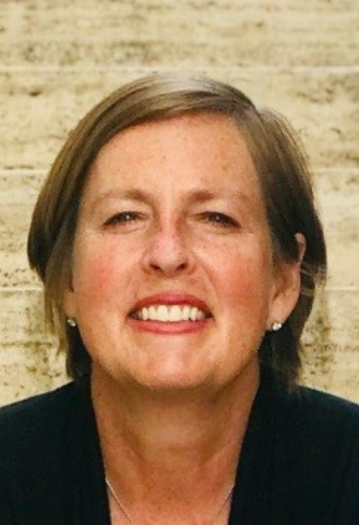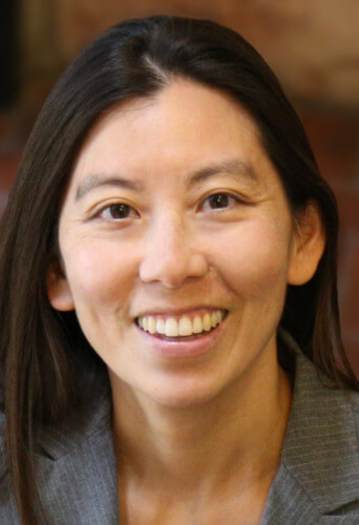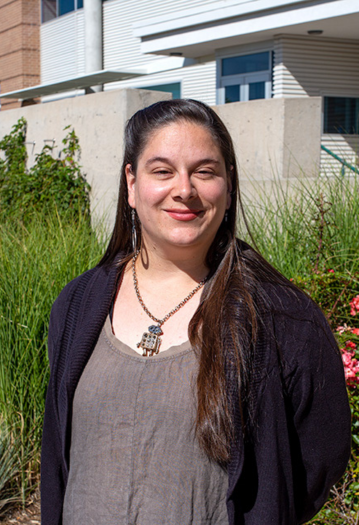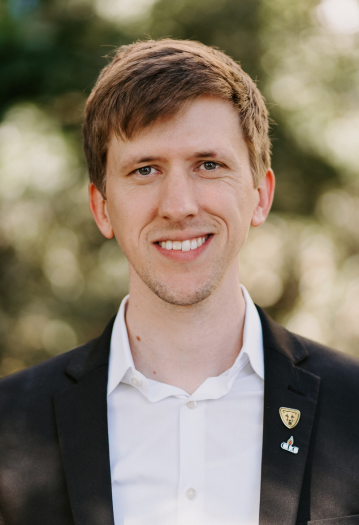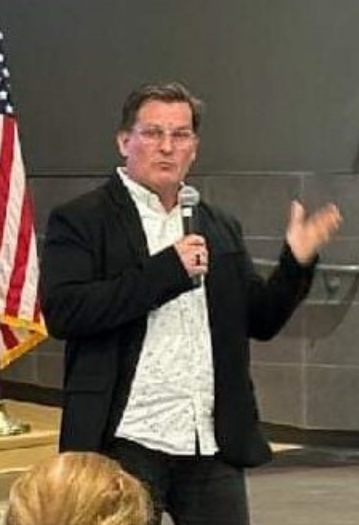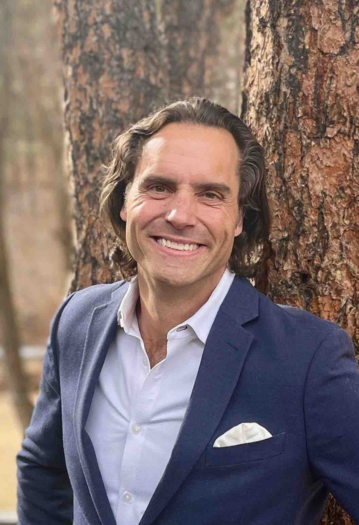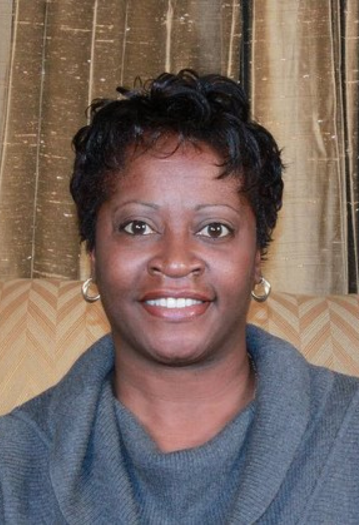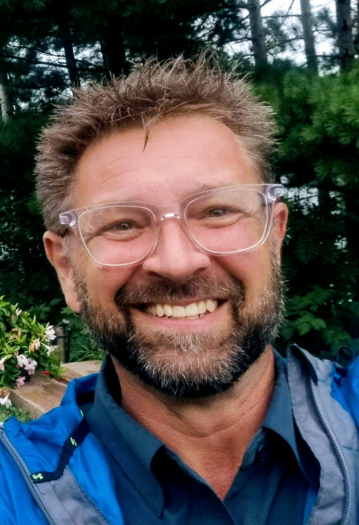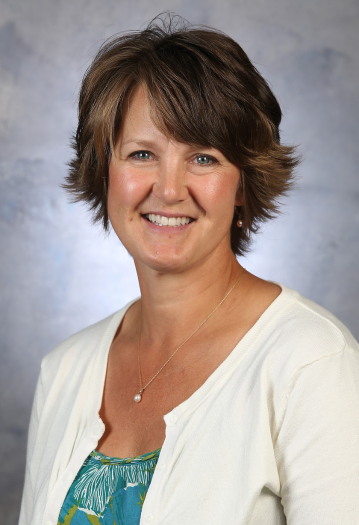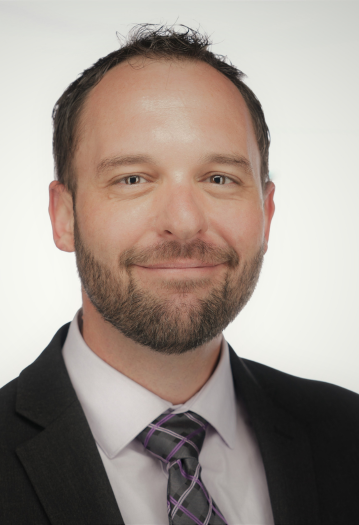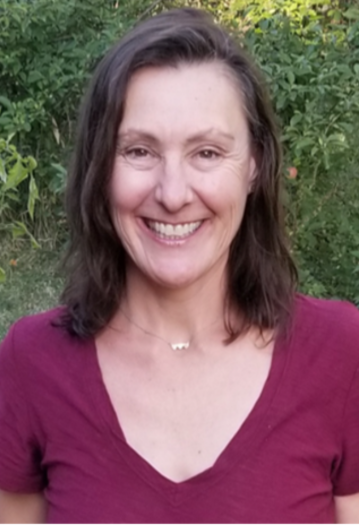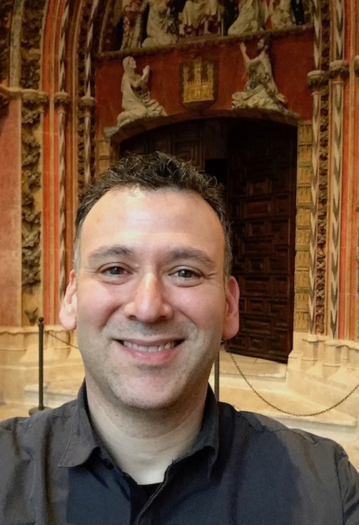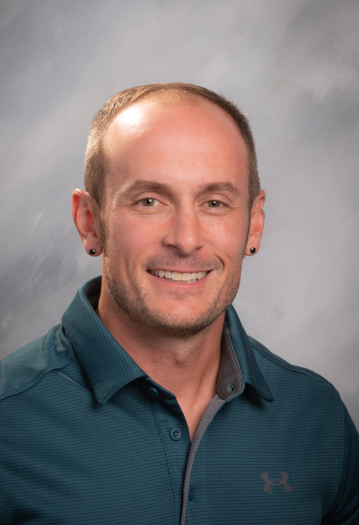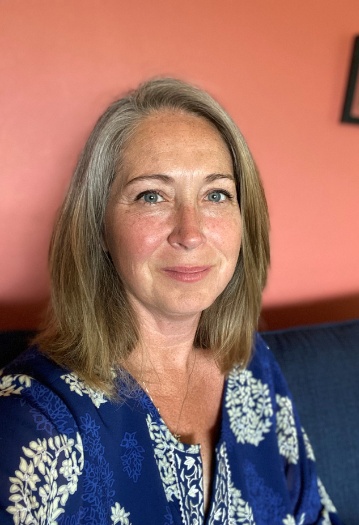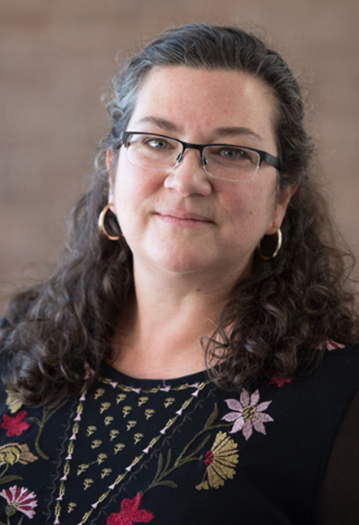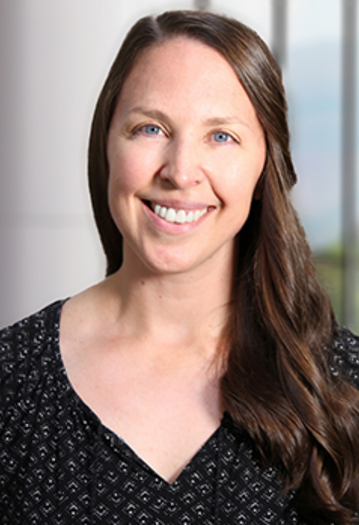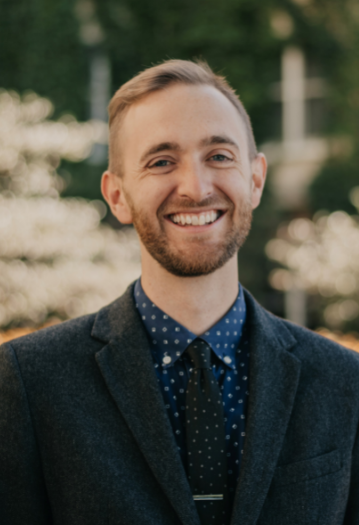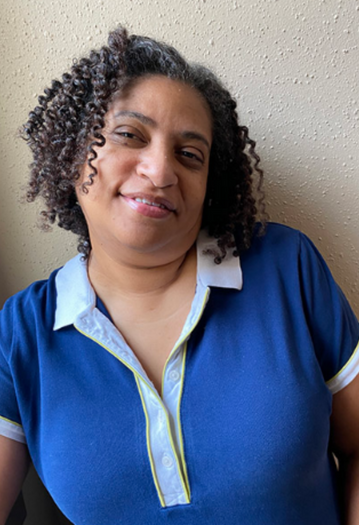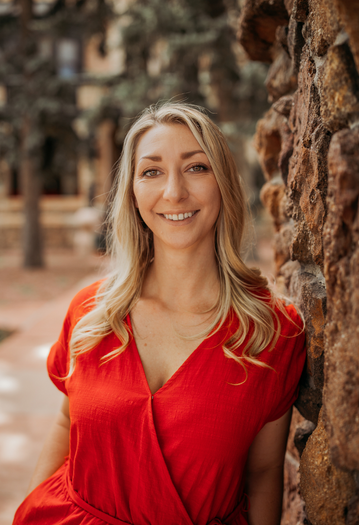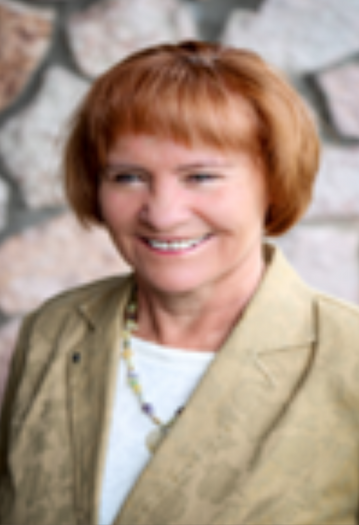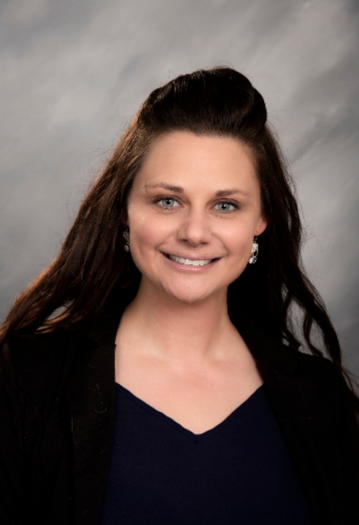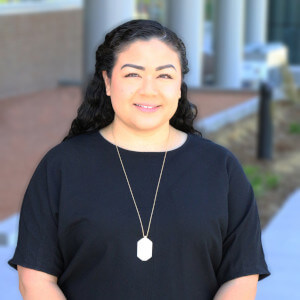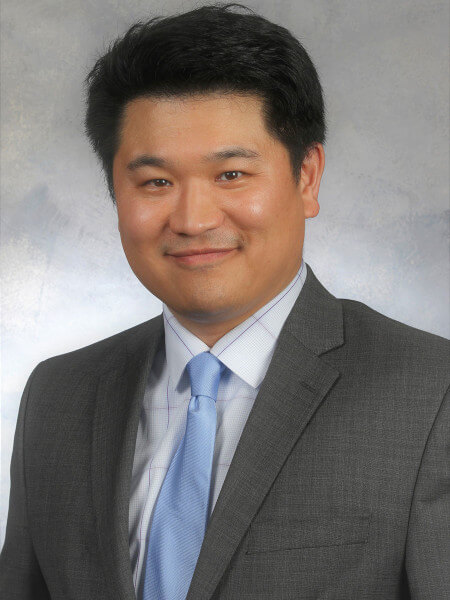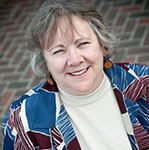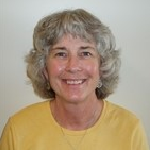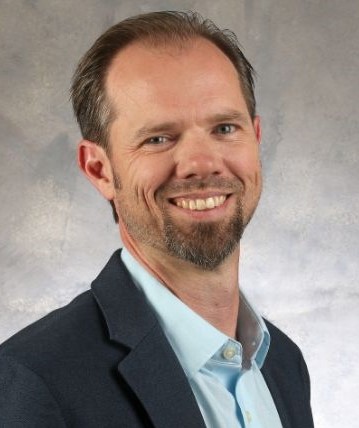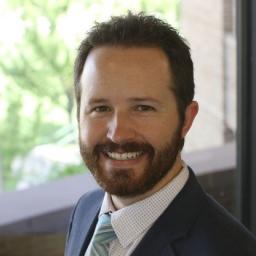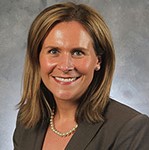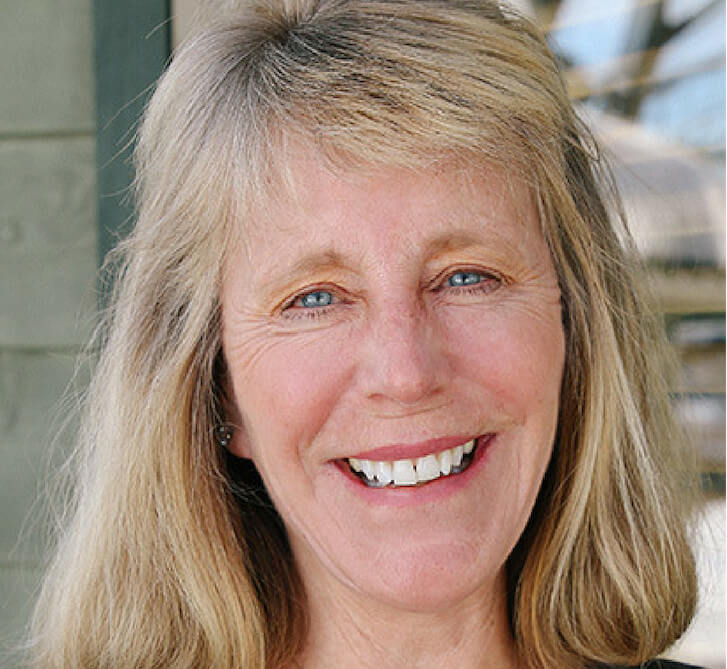
Ethics Fellows
Once a fellow, always a fellow
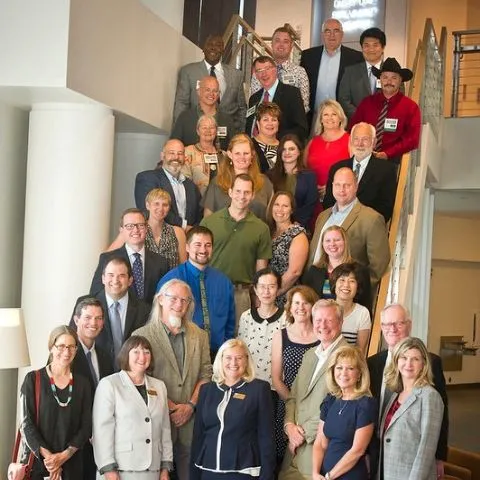
The UCCS Ethics Initiative at UCCS College of Business fellowships are awarded to UCCS educators who demonstrate excellence in pedagogical activities related to applied business, professional and organizational ethics. UCCS fellows work with ethics champions from nine colleges and universities in southern Colorado through the UCCS Southern Colorado Higher Education Consortium Ethics Champions Program. The SCEC Ethics Champion program is designed to create a collaborative community to expand principle-based ethics in Southern Colorado.
More Info
Ethics Fellow FAQS
Interested in becoming an Ethics Fellow? Learn more on becoming a UCCS Ethics Initiative Fellow by looking at our Ethics Fellow FAQs.
More Info
The Ethics Fellows and Champions Orientation
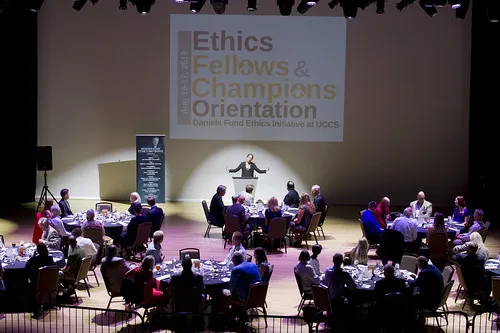
The UCCS Ethics Initiative at UCCS College of Business celebrates its incoming Ethics Fellows and SCEC Ethics Champions with a two-part orientation featuring a reception dinner and orientation workshop.
Welcome Our Newest Fellows
Armin Moin
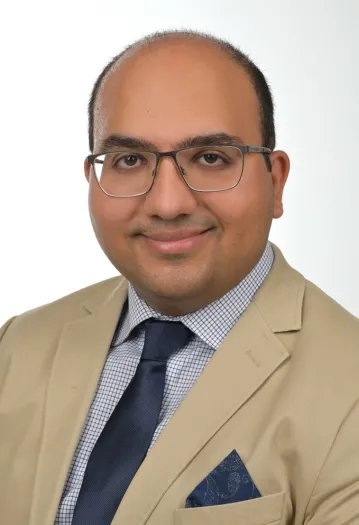
Tenure-Track Assistant Professor, College of Engineering and Applied Science
Catherine Grandorff
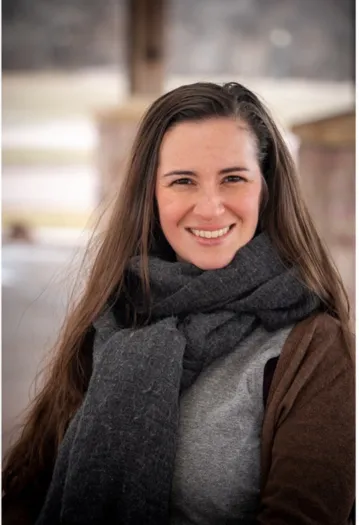
Principal Instructor of English, College of Letters, Arts & Sciences
Cody Parish
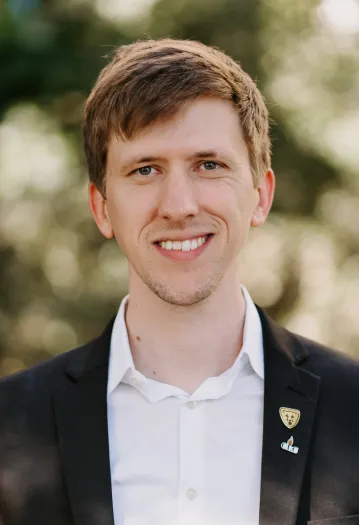
Program Director, Chancellor's Leadership Class and UCCSlead
Curtis Turner
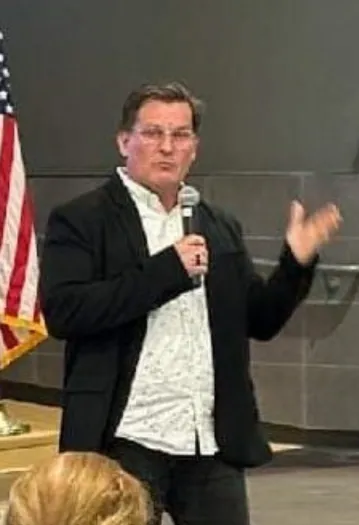
Associate Teaching Professor, Alternative Licensure Program Coordinator, Teaching and Learning, College of Education
Gabriela Martinez Mercier
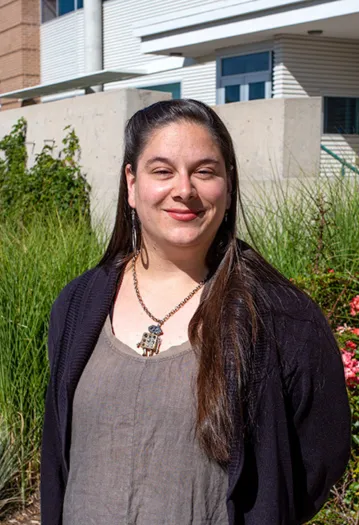
Instruction & Research Librarian & Instructor of Learning, Research, and Engagement, Kraemer Family Library
Kathy Liu

Associate Professor of Health Sciences, Helen and Arthur E. Johnson Beth-El College of Nursing and Health Sciences
Monica Furey
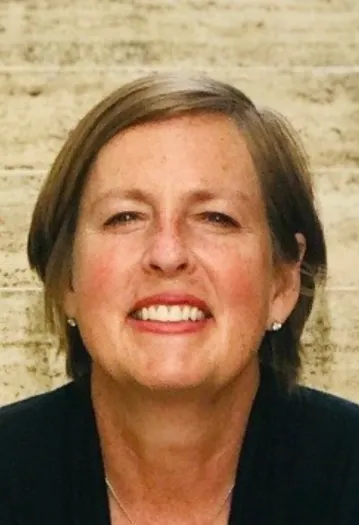
MSW, Clinical Assistant Professor, Social Work, College of Public Service
Paul Yankey
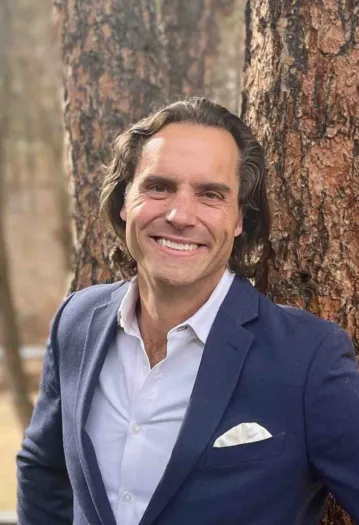
Monica Furey
Ethics Education Project
In collaboration with the social work club (and the communications/film club if they are interested), create a series of events where generalist/specialized/recent graduate social work students will narrate the stories of their ethical identity development, integrating the SW code of ethics and the DFEI ethical principles. The short films will be premiered during a social work club event and then subsequently available for recruiting, training, orientation, and class use.
Impact
Coming soon!
Biography
Coming soon!
Resources
Catherine Grandorff
Ethics Education Project
Project includes one or two units within ENGL 1410 to include an ethical framework to the research process applying the DFEI principles. Will include two main parts: a scaffolded source analysis in which they consider the integrity of both authors and publishers, and a group application opportunity on fostering trust and accountability through source selection and citation practices. The latter will include discussion and demonstration of AI’s usefulness and limitations in both a practical and ethical sense.
Impact
Coming soon!
Biography
Dr. Catherine Grandorff is a Teaching Professor in the English Department, where she has taught courses in creative writing, developmental writing, research writing, and rhetoric since 2012. Committed to cultivating inclusive communal spaces in person and online, she dedicates her teaching and learning practices to developing critical thinking through readings, writings, and reflections that draw on the multiplicity of the human experience. Her research centers primarily on gender, leadership, and language. She co-authored the textbook Stasis Theory and Research Practices, produced by UCCS faculty and widely used in the First-Year Rhetoric and Writing Program.
Resources
Kathy Liu
Ethics Education Project
Strengthen the ethics section of HSCI 6120 by strengthening the lecture section to include the DFEI principles of: integrity, trust, accountability, transparency, fairness, respect, rule of law, and viability. To create case studies to reflect scenarios that occur in the healthcare profession. The proposed topics to be covered in these case studies are: 1) ethics in decision making of patient care, 2) ethics of interprofessional practice among healthcare providers, and 3) ethics of cultural competency for the healthcare of diverse populations.
Impact
Coming soon!
Biography
Kathy Liu, PhD, ATC is an Associate Professor in the UCCS Johnson Beth-El College of Nursing and Health Sciences. Dr. Liu teaches in the Department of Health Sciences in the Master of Science in Athletic Training program. Dr. Liu has a Bachelor’s degree from Washburn University, a Master’s degree from the University of Northern Colorado, and her PhD from University of Delaware in Biomechanics and Movement Sciences. Dr. Liu’s research focuses on chronic ankle instability and injury prevention of the lower extremity.
Resources
Gabriela Martinez Mercier
Ethics Education Project
Ethical principles and the information environment: finding, consuming, and sharing information. Provide the audience (primarily students) with (1) an overview of the information landscape and information privilege (2) a reminder about their role as information finders, evaluators, consumers, and creators in the information ecosystem (3) ethical quandaries & case studies about information consumption and creation/sharing and the onus that goes with that responsibility.
Impact
Coming soon!
Biography
Gabriela joined UCCS in the fall of 2023 as an Instruction and Research Librarian in the Kraemer Family Library. She is particularly interested in learning design and technology and how it relates to libraries in academia. For this project she is exploring the information landscape, information privilege, and information consumption, evaluation, and creation, and how all of these interact in the higher education environment.
Resources
Armin Moin
Ethics Education Project
Integrating the DFEI principles into Software Engineering and Artificial Intelligence. Incorporate DFEI principles in courses in CS Department, such as CS 4320/5320, CS 4340/5340, CS 3820, CS 2080, CS 3110, CS 3300, and the future course on quantum computing and AI (coming up Spring 2025). A new course, CS 3820 (Introduction to Artificial Intelligence), will be offered in the Fall 2024 semester for the first time. Elaborate on the unique challenges that Artificial Intelligence (AI) has posed to society and will look into them from the lens of the DFEI ethical principles.
Impact
Coming soon!
Biography
Dr. Armin Moin is a Tenure-Track Assistant Professor and the director of the Quantum-Classical AI and Software Engineering (QAS) lab at the Computer Science (CS) Department of the University of Colorado Colorado Springs (UCCS). Before starting his faculty position, he worked as a Postdoctoral Scholar-Employee at the CS Department of the University of California, Santa Barbara (UCSB) in the US and as a Postdoctoral Scholar at the CS Department of the University of Antwerp and FlandersMake in Belgium. Dr. Moin obtained his Ph.D. in CS from the Technical University of Munich (TUM), Germany, in 2022. He also has a Master’s in CS and an Executive MBA in Innovation and Business Creation. His research is focused on the intersection of Artificial Intelligence (AI) and Software Engineering (SE), particularly AI4SE and SE4AI, emphasizing hybrid quantum-classical computing. Besides research and teaching at UCCS, Dr. Moin reviews top academic journals and conferences, such as IEEE Transactions on Software Engineering (TSE), IEEE Transactions on Cloud Computing (TCC), PLOS ONE, SoftwareX, SoSyM, Expert Systems with Applications (ESWA), and SEKE. Dr. Moin is passionate about encouraging diversity, equity, and inclusion, as well as empowering students, particularly the underrepresented groups in society, to start their ventures based on what they learn at the university.
Resources
Cody Parish
Ethics Education Project
Design Two-Part UCCSlead Workshop Series on Establishing Viable UCCS Student Clubs and Organizations Featuring DFEI Ethics Principles. This project would explore the intersection of ethics, leadership studies, and student clubs and organizations within student affairs in higher education. Both workshops would be offered to all interested UCCS students—but marketed specifically to officers of student clubs and organizations—at in-person trainings held during the 2024-2025 academic year and virtually as Canvas courses.
Impact
Coming soon!
Biography
Cody Parish serves as the Program Director of the Chancellor’s Leadership Class and UCCSlead at University of Colorado Colorado Springs. In his role, he leads his team in hosting dynamic leadership and service experiences that bring exciting growth opportunities to UCCS students. Cody’s mission is to be a resource for leadership development for all UCCS students no matter where they are in their college careers. Cody graduated with his master’s degree in English: Literary & Cultural Studies from Illinois State University, writing his thesis on the horror films of James Wan. So, during the day Cody works within leadership studies, but he moonlights as a horror studies scholar. He co-teaches a GPS course that employs horror metaphors as useful tools to understand the college experience. When not supporting student success through his staff position or teaching, Cody enjoys reading fiction and comics, watching movies and video game playthroughs, playing board and card games (he’s the co-advisor for the UCCS Fellowship of Game Enthusiasts, after all), and, more recently, re-engaging his roots in outdoor activities.
Resources
Curtis Turner
Ethics Education Project
Developing an assignment for a School Society and Diversity course that delves into the ethical issues surrounding standardized testing.
Conduct interviews with K-12 students to understand their desires and expectations regarding their school experiences. These interviews would serve as the basis for a video titled "I Am More Than a Test Score."
Impact
Coming soon!
Biography
Curtis Turner, a seasoned educator with over three decades of dedication to nurturing young minds. Beginning his journey as a dedicated teacher, Turner's passion for education and mathematics propelled him into leadership positions, including that of a Principal and later a Community College Dean. Throughout his career, he has embodied a spirit of lifelong learning, consistently striving to innovate and enhance educational experiences for both students and colleagues.
As a professor, Turner has shared his wealth of knowledge and experience with aspiring educators, instilling in them the same dedication and passion that has defined his own career. His diverse experience has not only aided in enriching the minds of countless students but has also served as a testament to the power of perseverance and intellectual curiosity.
Beyond his professional accomplishments, Turner's proudest achievement lies in his family. As a devoted father and grandfather, he cherishes the opportunity to impart wisdom, support, and love to the generations that follow in his footsteps. His roles as a father and grandfather exemplify his commitment to nurturing growth, both in the classroom and within his own family circle.
Through his unwavering dedication to the field, Curtis Turner hopes to cement his reputation as a true luminary in the field of education, leaving behind a legacy that will continue to inspire for generations to come.
Resources
Paul Yankey
Ethics Education Project
As the faculty advisor for the Impact Marketing Club, I am thrilled to announce the launch of two transformative programs that will significantly impact our community and campus: Catalyst Consulting and Non-Profit Unite.
These initiatives are designed to deeply embed ethical decision-making across various disciplines, promising to be transformative not only for our university but also for the broader community.
Catalyst Consulting:
Catalyst Consulting will engage students from the College of Business and draw participants from all academic disciplines, offering them the opportunity to engage in real-world marketing consulting for local small and medium-sized enterprises. With ethics as the guiding principle, Catalyst Consulting will provide these diverse students with practical experiences that emphasize ethical business practices.
Non-Profit Unite:
Non-Profit Unite aims to create a networking and educational hub for over 4,000 local non-profits. This project will promote ethical practices through TED Talk-style events and workshops. Non-Profit Unite will attract students from social sciences, communications, leadership studies, and more, alongside community leaders, fostering a rich, interdisciplinary environment focused on ethical discourse and practice.
These initiatives reflect our commitment to ethical practices and community engagement, providing invaluable experiences for our students and substantial benefits for our local community.
Impact
Coming soon!
Biography
Paul is best known for his three-decade career with Salesforce, Dell, and Cisco Systems, during their respective periods of highest and record-achieving growth. He managed some of the industry’s most complex and successful sales teams, receiving awards such as Dell’s Sales Person of the Year and peer-nominated Excellence in Leadership honors.
Paul is best known for his three-decade career with Salesforce, Dell, and Cisco Systems, during their respective periods of highest and record-achieving growth. He managed some of the industry’s most complex and successful sales teams, receiving awards such as Dell’s Sales Person of the Year and peer-nominated Excellence in Leadership honors. He has held executive positions with four VC-funded startups and serves on the boards of REI, The Salvation Army, USA Triathlon, Pikes Peak Athletics, and the SWL Foundation, which he founded.
Currently, Paul teaches ethical marketing at the University of Colorado, chairs the SWL Foundation, and heads advancement efforts for Resource Exchange International (REI).
Paul is an Ironman and utilizes his experience from athletic competitions to empower para-athletes and mentor individuals navigating challenges or losses in ability. He is an active training partner with a select group of para-Olympic athletes. His desire to help others led him to his work with the Suicide Prevention Coalition, where he actively speaks, leads support groups, and mentors.
Paul holds a B.S. in Finance from Biola University, an MBA from Santa Clara University, and is a graduate of the University of Pennsylvania's Positive Business Psychology program. He and his family live in Colorado Springs, CO.
Resources
Ila DeBose
Ethics Education Project
Ethics Is Musical: Exploring Ethical Practices through Indigenous Protest Music
Acquisition of Cultural knowledge and the exploration of the students’ implicit and explicit biases create an understanding of a minoritized groups’ strengths and struggles. Students encounter dissonance from clients and lack the understanding of the cause for the dissonance. Ethics is Musical will demonstrate a creative way of teaching ethical principles and standards to students while considering cultural influences.
Impact
Faculty Roundtable Resources:
Biography
Ila DeBose, LCSW is a Clinical Assistant Professor and Practicum Education Director in the Bachelor of Social Work program in the UCCS College of Public Service. Ila is a Licensed Clinical Social Worker in Colorado and Arkansas. She holds her Master of Social Work from the University of South Carolina (2003) and her Bachelor of Arts from Xavier University (1990). Ila brings over two decades of social work practice experience and seven years of academic teaching experience. She worked for over 20 years in behavioral and mental health services providing services to diverse populations ranging in age from five to 90 years old. She has worked in community mental health as well as held a private practice for 15 years.
Ila has taught courses in BSW social work at the University of Arkansas – Fort Smitha as well as UCCS. Those courses include Human behavior in the social environment, Diversity, social and economic justice, General social work practice and several other bachelor's level intervention courses.
In 2022, Ila co presented with colleagues in the UCCS social work program at the CSWE Annual Program Meeting, a national conference, on the topic of using simulation to foster ethics in field practicum students. Ila will co present at the 2023 CSWE Annual Program Meeting titled Building an anti – racist practice in the classroom and the field. Ila continues to serve the community and others in other states through presentations, serving as a board member, and volunteering her time.
Resources
Cory Gavitt
Ethics Education Project
Accelerating Ethical Decision Making of Pre-Service Teachers
Building on a research concept conducted by Gary Klein, Joseph Borders, and Neil Hintze for first responders and military personnel, (where they were able to demonstrate significant performance improvement to decision making under stressful situations), I developed an ethics based awareness and scenario training module that will be implemented in collaboration with students and faculty from UCCSTeach/ALP/COE Secondary Teacher Licensures, and the Department of Counseling and Human Services.
Impact
Faculty Roundtable Resources:
Biography
Cory Gavitt has worked in education for 21 years. He began teaching in Colorado Springs School District 11, where he taught science and engineering for 14 years. Before teaching, Cory roamed the wilds of California, Arizona, and Nevada as a geologist for several engineering firms. Cory’s own academic studies came from the University of Wisconsin (go Badgers!), where he earned bachelor’s degrees of science in Geology and Geophysics. Cory was drawn to UCCS for his master’s degree in Curriculum and Instruction in 2002 and returned in 2015 when he became a senior instructor training the next generation of STEM teachers with UCCSTeach.
Resources
Margaret Hunt
Ethics Education Project
Develop an ethics case competition (assignment) where students in the first- and second-year cohorts of the UCCS MS Athletic Training (MSAT) program are challenged to present a solution to an ethical dilemma based concepts and theories of sound ethical decision making, judged by faculty and current practicing clinicians.
Focus Areas
Ethics in Sport, Ethics in Health & Wellness
Impact
Faculty Roundtable Resources:
Biography
Margaret “Margie” Hunt, MS, LAT, ATC, is a Principal Instructor in the Helen and Arthur E. Johnson Beth-El College of Nursing and Health Science. She earned her Master of Science in Physical Education from Syracuse University, and a Bachelor of Science in Physical Education (Athletic Training focus) from the University of Iowa. She began her teaching career in 2013 as an instructor at UCCS teaching various undergraduate and graduate health science courses. She currently teaches primarily in the MS Athletic Training (MSAT) program and serves as the MSAT Clinical Education Coordinator. Margie’s teaching focus is on applied learning experiences in sports medicine. Margie is also a certified athletic trainer and limited scope x-ray operator. Before joining UCCS, she worked nearly two decades in the sports medicine department of the United States Olympic and Paralympic Committee (USOPC). Margie continues to provide contracted medical support to Olympic, Paralympic and community athletic programs.
Resources
Jon Husby
Ethics Education Project
Going for the Green: The Ethics behind LIV Golf and the PGA Tour
Impact
Faculty Roundtable Resources:
Biography
Jon Husby serves as the Principal Program and Internship Coordinator at the University of Colorado Colorado Springs PGA Golf Management Program. He assists students as they develop their golf careers through 16 months of internships and teaches the PGA of America’s Facility Management curriculum. Jon graduated from the University of Wisconsin-Stevens Point with degrees in Biology and Wildlife Ecology. He enlisted in the Army as a Cavalry Scout and served 8 years on active duty including deployments overseas to Iraq. He ended his military career in the Army Reserves as a Psychological Operations Specialist. Jon attended the University of Colorado PGA Golf Management Program after his military service and earned his PGA Membership and degree in Business Administration in 2015. Jon lives in Woodland Park, CO with his wife Joanna and boys Wesley and Chase.
Resources
Katherine Mack
Ethics Education Project
In English 4880 course, applied Daniels Fund Ethics Initiative Principles and virtue ethics to incorporation of the personal in existing literature and student writing.
Impact
Faculty Roundtable Resources:
Biography
I am a Professor in the Department of English at the University of Colorado Colorado Springs (UCCS). I have a Ph.D. and M.A. in Comparative Literature form the University of California, Irvine. I am interested in how rhetorics of the self and personal experience influence how we live, feel, and relate to ourselves and others; to social, cultural, and political movements; and to institutions. My sites of research are wide-ranging, encompassing truth and reconciliation efforts in South Africa, motherhood and family in the United States, the genre and practice of life writing, and rhetorical pedagogy in the era of “truth decay”. Across these diverse sites, I aim to illuminate how the personal and life narratives function rhetorically, in ways that are both productive and problematic. I’ve written two monographs – From Apartheid to Democracy: The Truth and Reconciliation Commission of South Africa (Penn State UP, 2014) and The Case for Single Motherhood: Contemporary Maternal Identities and Family Formations (forthcoming with University of Alabama Press) – as well as articles for academic journals and essays in edited collections. My current project is an examination of intimacy, motherhood, and family; this project has me dancing on the boundaries of varies genres of creative non-fiction. I teach a range of upper-division rhetoric and writing courses, including Advanced Rhetoric and Writing (ENGL 3010), Rhetorics of Post-Apartheid South Africa (ENGL 3300), Rhetorics of Family (ENGL 3400), and various iterations of the Rhetoric and Writing summit course, e.g. Public Writing, The Ethical Rhetor, The Rhetoricity of the Personal (ENGL 4880).
Resources
Roger Martinez-Davila
Ethics Education Project
Citizen Science in the Age of the Digital Humanities: Rewarding Experiences, Uncompensated Labor, and the Ethics of Engaging the Public in Collaborative Research.
Impact
Dr. Martinez-Davila plans to engage History Department graduate students in discussions regarding ethics, as well as citizen scientists who are working on the Deciphering Secrets: Unlocking the Manuscripts of Medieval Spain transcription project. As of August 2023, over 300 citizen scientists are collaborating on Deciphering Secrets' Zooniverse project.
Faculty Roundtable Resources:
Biography
Roger L. Martínez-Dávila is a Professor of History at the University of Colorado-Colorado Springs. His first monograph, Creating Conversos: The Carvajal-Santa María Family in Early Modern Spain, was published by the University of Notre Dame Press in 2018. From 2014 to 2017, he served as a Guest Curator for the New Mexico History Museum in Santa Fe, New Mexico, and its exhibition, Fractured Faiths: Spanish Judaism, The Inquisition, and New World Identities (2016). During 2015 through 2018, he served as a European Commission Marie Curie Fellow (2015-2018) at the Universidad de Carlos III de Madrid where initiated his Deciphering Secrets project, a citizen science project focused on the transcription of medieval manuscripts pertaining to Jewish, Christian, and Muslim interrelations. Presently, he co-directs an NEH Institute for Advanced Topics in the Digital Humanities titled, the Immersive Global Middle Ages, which empowers traditional humanists to create their own digital virtual reality worlds that reveal the Middle Ages through different religious and cultural lenses.
Resources
Markus Moeder-Chandler
Ethics Education Project
Integrate and expand DFEI principle-based ethics in to new vertically aligned course AMT3601 - Ethics Development, and Diversity in Leadership, and new USAFA Group Commanders Executive Workshop.
Impact
Ethics and Character Development in Action: The Human Domain of Leadership and Leadership Development
Markus Moeder-Chandler, EdD, NCC, BCC provides insight into the science and practice of training ethical decision making in leadership, character development, empathy development, self-awareness, and emotional intelligence. Research tells us that the most effective leaders are promoted for specialized skills, but fired for lack of ethical decision making, emotional intelligence, and interpersonal skill. Learn how UCCS and the United States Air Force Academy have designed programming and course work to train the trainers of the next generation of ethical and insightful leaders!
Faculty Roundtable Resources
Biography
Dr. Markus Moeder-Chandler currently serves within the Department of Counseling and Human Services in the College of Education. Dr. M-C works across all degree programs in DCHS and serves as the BA Human Services Program Coordinator. Dr. M-C works within the Air Officer Command MA and Academy Military Trainer Certificate Program, in partnership with the United States Air Force Academy, to train officers and enlisted service members in concepts of Ethics, Character Development, Counselor Development, and Leadership.
Resources
Jin Peng
Ethics Education Project
All Chartered Financial Analyst Institute members and candidates must abide by the CFA Institute Code of Ethics and Standards of Professional Conduct. Violations may result in disciplinary sanctions. Students will review cases and discuss how they can serve clients fairly and ethically when they face similar situations in their finance professions.
Impact
Ethics Case Studies were applied to the following courses:
- Fixed Income FNCE 4900 (31 students)
- International Finance FNCE 6400 (3 students)
Faculty Roundtable Resources:
Biography
Dr. Jin Peng was educated and received a PhD in Business Administration with an emphasis in Finance from the University of Connecticut (UConn), School of Business in December 2020. The University of Connecticut’s School of Business is accredited by the Association to Advance Collegiate Schools of Business (AACSB). At the University of Connecticut, Dr. Peng did her dissertation under the supervision of Professor Shantaram Hegde. She has published at Economics Letters. Her research accomplishments include being selected as the recipient of GLINT and CRCW research grants at UCCS and School of Business Named Research Scholarship and CIBER Ph.D. Dissertation Fellowship at UConn. Dr. Peng has presented or discussed at American Finance Association Annual Meetings, Financial Management Association Annual Meetings, Annual Conference on Financial Economics and Accounting, and Global Chinese Real Estate Congress. Her research area covers Investment and Corporate Finance.
Dr. Peng has taught Financial Management and International Finance courses at both undergraduate and MBA levels for seven years at multiple AACSB accredited institutions including University of Connecticut, Northern Kentucky University and John Carroll University. She is also experienced in teaching investment and cases in finance, either online or in person. She received Recognition for Excellence in Teaching from the Office of Provost and Outstanding Teaching Award at UConn. She has invited local industry professionals to her classes as guest speakers and has been interviewed by business owners in media coverage about her perspectives on investment. Dr. Peng has also worked as an investment consultant in CITIC Securities Shenzhen, writing financial analyst reports and providing investment advice to customers.
Resources
Abigael "AJ" Vafiades
Ethics Education Project
Asian Ethics and Identity in Theatre
Impact
AJ plans to host a colloquium to engage students and community members in ethical questions surrounding Asian casting in film and theatre communities, the telling and re-telling of Asian-based stories, and how we can increase our ethical awareness within these issues. Chay Yew, renowned playwright and theatre director, and Vanessa Kai, an actress best known for Kung Fu (2023) and Gabriel's Inferno (2020) plan to also be in attendance during this talk and will give their personal insights on these ethical dilemmas, while engaging with students, staff, and faculty alike.
Faculty Roundtable Resources:
Biography
Abigael (AJ) Vafiades started her journey with the Daniels Fund Ethics Initiative in 2019 as a Students Ethics Ambassador for Kevin Landis in the University of Colorado Colorado Springs Theatre and Dance Program. During her studies, she was fortunate enough to interview several guests as part of Landis' Prologue series regarding the ethical culture engrained in the arts. AJ is excited to pursue her own research project concerning "Asian Ethics and Identity in Theatre." She hopes this project will be the first of many with the Daniels Fund Ethics Initiative and the UCCS Ethics Fellowship Program.
Resources
Angie Dodson
Ethics Education Project
Academic Year 2022-23
Develop an instructional series to assist faculty in teaching and implementing DFEI principles into a course while incorporating the same into their instructional practice.
Focus Area
Behavioral Ethics
Impact
Implemented self-paced "Ethics First" badge curriculum on Canvas course management platform.
Integrated DFEI principles into GPS 1010_005: New Horizons, including guest speaker and decision-making exercise about ChatGPT.
Developed an Introduction to the Daniels Fund Ethics Initiative (DFEI) Collegiate Program at Pueblo Community College module
- Introduction to DFEI Collegiate Program UCCS COB
- Ethics in Everyday Life
- DFEI Ethical Decision-making Walkthrough
- Student Involvement in DFEI
Developed and shared Establishing Ethical and Acceptable Use of AI/ChatGPT lesson with the languages, arts, and humanities division chair at Kaua'i Community College who is sharing it with colleagues and other division chairs which uses the DFEI decision-making steps to help establish class protocol for the use of AI or ChatGPT in the classroom.
Faculty Roundtable, "ETHICS: A Model for Incorporating Principle-based Ethics in Any Curriculum."
Biography
Coming soon.
Resources
adodson2@uccs.edu
Carol Finnegan
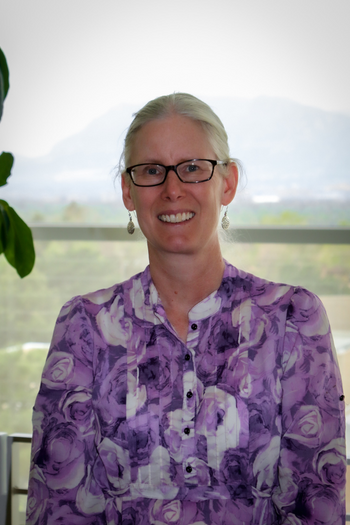
Ethics Education Project
Academic Year 2022-23
My project is to develop an interactive debriefing session to follow a guided tour of Dachau concentration camp (for the students on a Germany study abroad trip) using DFEI principles as a framework for the discussion. Relevant ethical themes include Obedience to Authority. The most applicable DFEI principles would be integrity, accountability, respect, and rule of law.
Focus Area
Behavioral Ethics
Impact
Designed a series of activities around the Holocaust and global genocides for several constituencies – a Germany study abroad class, the university, and the community. This fellowship builds upon a meeting with the educational department of Yad Vashem sponsored by the Jewish National Fund in June 2022. The objectives were: 1) to sensitize study abroad students to Munich about the Holocaust; 2) to utilize the UCCS Daniels Fund program to provide an ethical framework to help our community intellectually process genocide; to help our students recognize how businesspeople enabled, assisted, and empowered government actors to perpetrate these heinous acts; and to prevent members of our community from becoming collaborators in future atrocities.
Activities included International Holocaust Remembrance Day speaker, reading and reflection of Night by Elie Wiesel, German Business Culture speaker, and pretzel-making. (7 students, up to 40 attendees at events)
International Holocaust Remembrance Day: Genocides around the World (Video Link)
Faculty Roundtable: "Cultivating Ethical Business Decision-Makers"
Biography
Dr. Carol Finnegan possesses an undergraduate degree in History from The George Washington University, an MBA in Agribusiness and Finance from Santa Clara University and a PhD in Retailing from Michigan State University. In addition, she has a diploma in Polish Language and Culture from the Catholic University of Lublin in Poland. After university, she worked with consulting firms specializing in international economic development on contracts with USAID and the World Bank, among others.
Currently, Dr. Finnegan is an Associate Professor of Marketing in the College of Business and Administration at the University of Colorado, Colorado Springs. She has also taught at the National Taiwan University, Cologne Business School, and the National Taiwan University of Science and Technology, and presented a seminar at Sol Plaatje University in South Africa. Dr. Finnegan serves on the CU-Denver Center for Business Education and Research Advisory Council.
She teaches international business, marketing strategy, retailing. Her research focuses on international marketing and retailing strategy as well as sports marketing. Her research has been published in various international business and marketing journals, including Journal of International Business Studies, Marketing Letters, European Journal of Marketing, International Journal of Management Reviews, and International Marketing Review. At present she is collaborating on a revision of an international retailing paper, and the writing of two manuscripts -- one in international marketing strategy and another on sport marketing.
Resources
cfinnega@uccs.edu
Crystal Baye Herald
Ethics Education Project
Academic Year 2022-23
We often make subconscious decisions with ethical implications. The process of writing and designing information is rife with opportunity for such decision-making. By shining light on the spaces within this process where ethical decision-making may be overlooked, we begin to see where we may make assumptions about our purpose for communicating, who our audience is (and isn’t), and what we feel they need (and don’t need).
My curricular goal was to replace one of our existing analysis-focused units with one that encourages students to take a closer look at ethical decision making as it relates to technical communication. Students examined intentional use of plain language and the effect on specific communities, ethical decision-making when considering visual rhetoric, and understanding how the value we ascribe to elements of the rhetorical situation affect our communication decisions, among other things. The course also briefly introduced various ethical models for consideration.
Focus Area
Ethics in Technology
Impact
Integrated DFEI Principles into TCID 3080 Advanced Professional & Technical Writing - starting summer 2023 (19 students)
Faculty Roundtable: "Hidden Ethics: Locating the Spaces Where Ethics Live in Professional & Technical Writing
Biography
Baye Herald is a Principal Instructor in the Technical Communication & Information Design Program at UCCS. She teaches Advanced Professional & Technical Writing and Technical Editing, and serves as a Teaching Fellow for the LAS Faculty Resource Center. She specializes in online pedagogy and designing accessible courses with high-impact teaching strategies.
Resources
cherald@uccs.edu
Christina Jiménez
Ethics Education Project
Academic Year 2022-23
My project is centered on developing, with students, new modules, assignments, and experiences that ask students to learn about the DFEI principles and then apply them to real-world historical case studies of international business practices and their impact on a range of stake holders, including business owners and investors, managers, workers/employees, and local communities. Students will select case studies from a range of organizations including transnational business as well as other type of regional and community organizations operating along the US-Mexico border from the general period from 1960s to 2000s.
Focus Area
Behavioral Ethics
Impact
Integrated discussion of DFEI Principles into four graduate seminars (32 students)
- Ancient History
- Medieval European History
- Latin American History
- South Asian History
Faculty Roundtable, "Got Ethics? Integrating Ethical Principles into Everyday Educational Discussions"
Biography
Christina M. Jiménez, Ph.D. is Professor and Director of Internships in the Department of History at University of Colorado Colorado Springs (UCCS). She has a Ph.D. and M.A. in Latin American History from the University of California, San Diego. She teaches a range of classes from lower-division survey courses and first-year student seminars to graduate research seminars in Mexican history, Latinx/Hispanic histories, Latin American History, comparative urban history, immigrant histories, and citizenship studies. Her historical research specializes in Mexican History, Latin American History and the history of cities and citizenship. Her book Making an Urban Public: How the City Revolutionized Citizenship in Morelia, Mexico, 1880-1930 (University of Pittsburgh Press, 2019), named as an “Outstanding Academic Title of 2019” by Choice, a publication of the American Libraries Association, explores citizenship, urban politics, and popular culture in the Mexican city. She has published in several anthologies and academic journals. Her current book project is City of Sellers: Itinerant Urban Workers [Ambulantes] and Municipal Politics in Guadalajara, Mexico, 1870-1940 (book manuscript in progress). She has also started a new collaborative dialogue with scholars in Bogotá and Medellín, Colombia centered on the history of the informal economy and public space.
Jiménez is a workshop facilitator, leading challenging conversations around diversity, inclusion, systems of privilege, systems of oppression/ marginalization, and strategies for social change. She is co-editor (with Ferber, Herrera, and Samuels) of The Matrix Reader: Examining the Dynamics of Oppression and Privilege (McGraw-Hill, 2008).
Jiménez has received several recognitions and honors, including, the UCCS Chancellor’s Award (2016), UCCS Award for Faculty Contributions to Diversity and Inclusiveness (2013), the “Outstanding Teaching Award” from the College of Letters, Arts, and Sciences (2008).
Resources
cjimenez@uccs.edu
Jess Kirby
Ethics Education Project
Academic Year 2022-23
It has never been more apparent how important athlete autonomy and well-being are in youth sport. The ethics of youth sport that inform coaching and sport parenting need to be elevated to build a foundation that protects and elevates the well-being of athletes from the very beginning of their sport experiences, and continues throughout the lifetime of sport participation and increasing levels of competition. I anticipate creating both classroom and community outputs. For the classroom, I will incorporate ethical principles and considerations in lecture materials and in final applied case studies for the graduate and undergraduate level Sport and Exercise Psychology courses (HSCI 3310 & 6011). With these, I would like to bring in a parent and coach panel to these classes to discuss these considerations with students and the challenges faced today.
Focus Area
Ethics in Health and Wellness
Ethics in Sport
Impact
Integrated DFEI Principles into HSCI 3310 Applied Sport & Exercise Psychology, including a panel discussion with community members involved in youth sport (28 students)
Faculty Roundtable: Athletes with Choices, Athletes with Voices: The ethics of supporting athlete autonomy and athlete well-being in youth sport
Biography
Jess Kirby is an assistant professor in the Health Sciences department at UCCS. Dr. Kirby's research focuses on exploring the sport and physical activity experiences of individuals across the lifespan, as well as the impact of social connection and peer relationships on psychological well-being in sport and physical activity settings. She specializes in qualitative and arts-based research methods including narrative, ethnography, portraiture, and research poetry. Dr. Kirby is the director for the new Mountain Lion Strong program on campus, aimed at supporting the well-being, resilience, and mental health of all UCCS student-athletes. She currently serves as the graduate program coordinator for Health Promotion, Assistant Director for the Center for Critical Sport Studies, and the faculty advisor for the UCCS Fitness Buddies program.
Resources
jkirby@uccs.edu
Nicholas Lockwood
Ethics Education Project
Academic Year 2022-23
The focus of this project is to actively promote and amplify the DFEI ethical principles through Orientation Leader Training Curriculum. With particular focus on integrity, trust, accountability, transparency, respect and viability, orientation student staff will collaboratively determine how these principles relate to their job responsibilities and optimize new students’ onboarding experiences and processes. Orientation Leaders will actively apply ethical principles with on-the-job decision-making situations and identity ethical implications in the context of new student orientation. The curriculum will include scenario-based training and discussion exploring of behavioral ethics. In the spirit of expanding outreach to other educational institutions, an overview of the projects impact will be submitted for consideration as a peer reviewed presentation to the orientation regional conference (NODA).
Focus Area
Behavioral Ethics
Ethics in the Organization
Impact
Revised Peer Mentorship training to utilize DFEI Principles in discussion of ethical dilemmas (22 students)
Faculty Roundtable: "Integrating Ethical Principles into Peer Mentorship Training"
Biography
Coming soon.
Resources
nlockwoo@uccs.edu
Malikah Marrus
Ethics Education Project
Academic Year 2022-23
Develop ethical decision-making modules for use throughout the academic year. One set of modules will focus on the ethics of supervision and leadership. The other set of modules will focus on the ethics of self-determination. Two modules would be for students and two modules for field instructors. At the end of the school year students will join with their field instructor to do an interactive ethical decision-making exercise based on cases from the field. Since there are multiple modules, this program would last the entire school year. All students currently in field would participate, which would be at least 100 undergraduate and graduate students a year.
Focus Area
Behavioral Ethics
Ethics in the Organization
Impact
Faculty Roundtable: "Hand in Hand: Development of an Ethical Training Program for Students and Practicum and Internship Supervisors"
Biography
Malikah is a clinical assistant professor and the MSW field practicum director of the social work department. Malikah arrived at UCCS in August 2020 to help start the new social work program, which was recently accredited. Dr. Marrus has presented locally, regionally, nationally, and internationally on social worker education, the justice system, inter-professional collaboration, hun a’ rights, and ethics.
Resources
mmarrus@uccs.edu
Michelle Prose
Ethics Education Project
Academic Year 2022-23
My ethics education project will focus on ENGL 1410 and the third level of stasis theory. I will introduce the DFEI principles as a standard for students to use when analyzing published arguments and while making their own researched arguments.
Focus Area
Coming soon.
Impact
Integrated DFEI Principles into ENGL 1410 - Rhetoric and Writing II: Research and Argument (60 students). An early in-class activity focused on use of AI/education technology, ethics discussed in detail in later stages of the research process.
Shared activity/response to AI technologies with colleague at Valencia College in Florida.
Faculty Roundtable, "DFEI Principles in Research Writing Through Stasis Theory."
Biography
Michelle Prose holds a Masters in English with an emphasis in Rhetoric and Composition from Colorado State University-Pueblo and is completing a Masters of Business Administration with an emphasis in Operations Management from UCCS. She has taught First Year Rhetoric and Writing at UCCS since the fall of 2016, and has taught ENGL 1300, 1305, 1308, 1310, and 1410 in that time, along with occasional GPS classes.
Resources
Kathy Prue-Owens
Ethics Education Project
Academic Year 2022-23
Utilize the DFEI Ethical Principles within NURS 6120 Nursing Research Course. The goal of the project will be to have students investigate the DFEI principles, write a "summary statement" on how these principles can support a ethical concern within the nursing profession and/or clinical practice. To commit to this project, I will create a module that focuses on the DFEI principles and create learning activities that link the principles with nursing practice among graduate students.
Focus Area
Ethics in Health and Wellness
Impact
Integrated DFEI Principles into NURS 6120: Nursing Research (40 students)
"Do Ethics Really Matter?" Featuring Guest Speaker Kate McCord, Ph.D., R.N.
Faculty Roundtable: "Ethics Engagement: Professional Obligation?"
Biography
Dr. Kathy Prue-Owens is a retired Army Nurse Corps Officer who served in the United States Army for over 30 years. Her specialties include cardiovascular, critical care, burn care, nursing research and administration. Prior to joining the University of Colorado Colorado Springs (UCCS) College of Nursing, Kathy practiced extensively in the clinical setting and served as the Medical-Surgical Nursing Consultant to the Army Surgeon General. As an Assistant Professor at UCCS, she has provided clinical, educational, research and cultural expertise for the university, community, and national organizations. Kathy teaches undergraduate and graduate level nursing research courses that include ethics. She is currently active in professional nursing organizations, with an appointment to the Board of Directors for the Colorado Center for Nursing Excellence and the Board of Directors for the Colorado Healthcare Ethics Forum. Kathy recently became the President-elect for the Colorado Healthcare Ethics Forum.
Resources
kprueowe@uccs.edu
Kylie Rogalla
Ethics Education Project
Academic Year 2022-23
While suicide ideation is discussed among multiple avenues within our 60-credit graduate counseling curriculum, the primary course where suicide assessment is introduced and practiced is within COUN 5550 Crisis Counseling, Trauma, and Disaster Work. Currently, the syllabus for this class entails textbook/article readings and lecture regarding suicide risk and assessment, followed by a mock session with a peer, concluding with peer feedback from the interaction. As a part of the DFEI project, I would like to expand on this format, while integrating several DFEI principles of cross-discipline practice.
Focus Area
Ethics in Health and Wellness
Impact
DCHS Professional Development Day
COUN 5550: Crisis Counseling, Trauma and Disaster work (Fall 2022)
Conference Presentations:
- “The Impact of Therapy Dogs in Counselor Education” (with Ethics Fellow, Dr. Diane Stutey)
- “Trauma-Informed Decision-Making: Employing the 10 Principles of Ethical Practice.” (with Ethics Fellow, Dr. Cortny Stark)
Faculty Roundtable, "Suicide and Grief through an Ethical Lens"
- PowerPoint Presentation
- Video Recording of Presentation- Coming soon
Biography
Coming soon.
Resources
krogalla@uccs.edu
Nick Tapia-Fuselier, Ph.D.
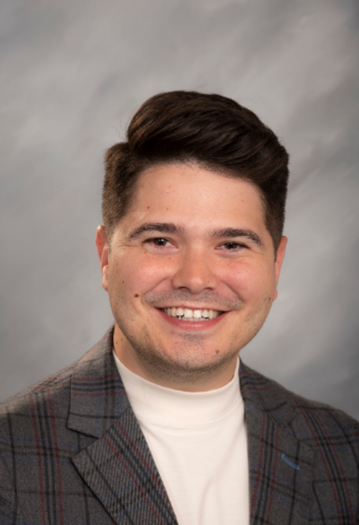
Ethics Education Project
Academic Year 2022-23
This project aims to expose emerging and established student affairs professionals to the big five ethical paradigms in order to enhance their abilities to navigate the ethical decision-making process through three proposed projects:
- Integrating DFEI and related professional ethical principles into LEAD 5010.
- Integrating DFEI and related professional ethical principles into a co-curricular experience in collaboration with the Student Affairs Association.
- Offering at least one ethics “lunch and learn” experience for student affairs professionals at UCCS.
Focus Area
Ethics in the Organization
Impact
Revised curriculum for LEAD 5010: Personal and Professional Foundations (the first course in the M.A. in Leadership with a Concentration in Student Affairs in Higher Education program) to include DFEI principles and ethical paradigms that guide decision-making in higher education.
Faculty Roundtable, "Understanding the Big 5 Ethical Paradigms that Guide Decision Making."
Biography
Coming soon.
Resources
ntapiafu@uccs.edu
Michael J. Corl, Ph.D.

Ethics Education Project
Academic Year 2021-22
Establishment of an Ethics Thread within the undergraduate education experience of all students within College of EAS. The ethics thread will provide students with a foundation of professional ethics, an understanding of ethical issues within their discipline, and provide opportunities to demonstrate their ability to make ethical decisions.
Focus Area
Impact
- Faculty Roundtable, "Protecting Your Profession"
Biography
In August 2020, Dr. Corl assumed the role of Assistant Dean of the College of Engineering and Applied Science at the University of Colorado Colorado Springs. As Assistant Dean of the college, he leads efforts with respect to ABET accreditation, the online graduate programs, scholarships, student requests, and numerous other college initiatives.
Resources
Todd Endres, MA, SPHR
Photo to be provided.
Ethics Education Project
Academic Year 2021-22
Integrate the DFEI ethical principles into the redesigned HRMG4830 (Human Resources Management for Managers) and the new HRMG4450 (Advanced Topics in HR) courses
Focus Area
Impact
Faculty Roundtable, "It Depends"
Biography
Coming soon.
Resources
Stephanie Gangemi, Ph.D.
Ethics Education Project
Academic Year 2021-22
Ethical Decision Making: Imminent Risk Assessment & Intervention in Clinical Practice
Focus Area
Impact
- Faculty Roundtable, “No Small Parts”: Enhancing Ethics Training for Helping Professionals Through Simulation-Based Learning
Biography
Stephanie Gangemi is a Clinical Assistant Professor and Director of the Bachelor of Social Work program in the UCCS College of Public Service. Stephanie is a Licensed Clinical Social Worker in Colorado. She holds a Doctor of Philosophy from Smith College (2021), her Master of Social Work from Columbia University College of Social Work (2008) and her Bachelor of Arts from Wagner College (2006).
Stephanie brings over a decade of social work practice experience as well as academic teaching experience. She worked for over 10 years in correctional mental health at Riker's Island as well as serving as the Director of Mental Health at the El Paso County Jail. She has taught social work courses at Smith College, Newman University, Pikes Peak Community College and Wagner College.
Stephanie’s clinical practice has included work with incarcerated people with severe and persistent mental illness, the assessment, diagnosis and treatment of personality disorders as well as suicide risk assessment and treatment. Her research is on the training and experience of staff members in jail and prison. Stephanie was also the 2018, first-place winner of the international, Seidenberg Paper Prize on proposed solutions to issues between guards and inmates.
Resources
Sloan Gonzales, MA
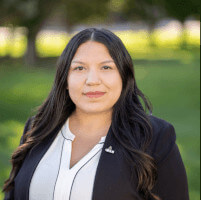
Ethics Education Project
Academic Year 2021-22
Integrating the Daniels Fund Initiative Ethical Principles into the UCCSlead Gamechanger program. Through teaching these principles it will strengthen the curriculum that focuses on ethical student leadership. Which will create stronger student leaders on our campus.
Focus Area
Impact
- Sloan advised the UCCS case competition team that won first place in the U4 track at the UCCS 2021 case competition.
- Faculty Roundtable, Everyday Ethics - A look at Ethics & Leadership
Biography
Sloan Gonzales currently serves as the program director for The Chancellor’s Leadership Class and UCCSlead program, in addition to being an adjunct instructor in the department of Communication at UCCS. She has worked in non-profits and higher education for the past decade. She also is a community advocate, trainer, program developer, and public speaker that focuses on leadership, communication, social justice, young leadership development, and culture building. Sloan has worked with various group and organization on topics ranging from conflict management, communication, strategic planning, DEI, and civic engagement. Sloan is a UCCS alumni and has been on campus since 2007 as a student, faculty, and staff member, and is a proud Mountain Lion.
Helen Graham, Ph.D., RN-BC, CNS, FAACVPR

Ethics Education Project
Academic Year 2021-22
1) Integrate the DFEI ethical principles into two nursing courses: Research Nursing 4010 and Professional Practice Nursing 4250. 2)Introduce DFEI ethical principles into the newly revised ADN-to-BSN Nursing Program Curriculum.
Focus Area
Impact
- Relational Narratives: Solving an Ethical Dilemma Concerning an Individual's Insurance Policy
- Faculty Roundtable, First, Do No Harm
Biography
I completed my graduate education with the University of Colorado. My research work focuses on cardiovascular risk factor management with an emphasis on cardiac health promotion. I teach in the nursing undergraduate program and also work with nursing and IPE graduate students. My clinical professional experience includes cardiovascular nurse management within inpatient and outpatient settings.
Resources
Lauren Hallaron, MA
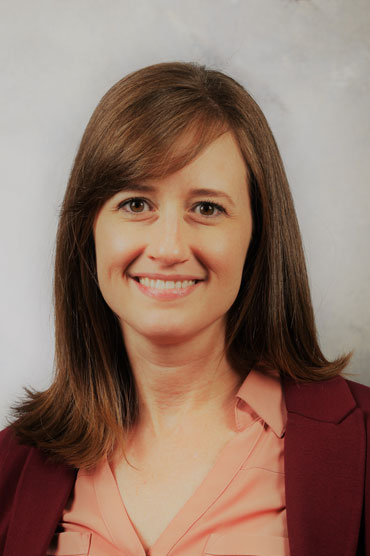
Ethics Education Project
Academic Year 2021-22
Integrating DFEI principles into introduction to Nonprofit Management
Focus Area
Impact
- Faculty Roundtable, "Ethical Consideration for the Nonprofit Sector"
Biography
Instructor of Business, Government, and Society
Resources
Karin Larkin, Ph.D.
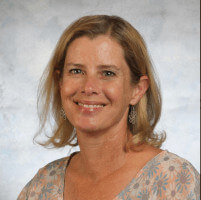
Ethics Education Project
Academic Year 2021-22
Developing Museum and archaeology curriculum that integrates the DFEI ethical principles into courses such as ANTH 3180: Archeology and Public Policy, ANTH 1020: Introduction to Archaeology, ANTH 3210: Archaeological Lab Methods, ANTH 4420: Museums and Meaning, and MSGP 4100: Native American Perspectives on Museums.
Focus Area
Impact
Faculty Roundtable, Teaching Heritage Management Ethics
Biography
KARIN LARKIN, PhD, is Assistant Professor and Curator for the Department of Anthropology. As an anthropologically trained archaeologist and museum professional, her research and professional practice interests focus on public scholarship and using material culture to understand human culture and society. These interests often cross disciplinary lines and integrate arts, humanities, and social studies. They also combine ethnohistory, archaeology, and material culture over time and space. Specifically, she is interested in examining concepts of identity, representation, and public scholarship. Her research and professional practice is applied and often has a public outreach or service component.
Resources
Colin McAllister, D.M.A.
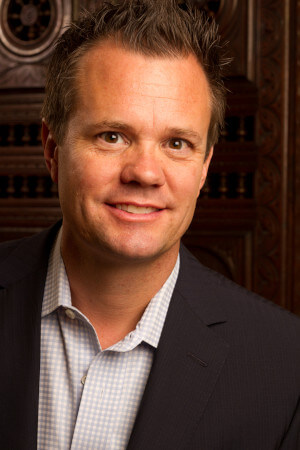
Ethics Education Project
Academic Year 2021-22
Integrate the DFEI principles into MUS 1624/MUS 2624/MUS 3624/MUS 4624/MUS 2500/MUS 3500, as well as potential outside presentations.
Focus Area
Coming soon.
Impact
- Faculty Roundtable, "What's Your Harmony?: Ethics and Making Music in the Contemporary World"
- Colin shared a video that he was a part of creating, YouTube Video
- Video Recording of Presentation
Biography
Colin McAllister is an Assistant Professor in the Department of Visual and Performing Arts at the University of Colorado, Colorado Springs, where he was awarded the 2020 LAS Outstanding Teaching Award. His performances as a guitarist have been hailed as “sparkling….delivered superbly” (San Francisco Chronicle), “ravishing” (San Diego Union Tribune) and “an amazing tour de force” (San Diego Story), and he has recorded on the Summit, Innova, Centaur, Naxos, Albany, Old King Cole, Vienna Modern Masters, Carrier and Tzadik labels. His research interests include musical modernism, the apocalyptic paradigm as manifested in varying phenomena—literature, music, and art, contemporary music performance and pedagogy (which will be the center of his work as a new Ethics Fellow).
Resources
Hazel Reyes, MS, LAT, ATC
Ethics Education Project
Academic Year 2021-22
Ethical concerns are intertwined with a wide range of health communication activities aimed at influencing people's health-related beliefs or behaviors. Having a steadfast foundation in principle-based ethics is at the heart of health communication. The focus of this project is to actively promote and amplify the DFEI ethical principles through modules and case studies to the following Health Science courses: HSCI 3520 and HSCI 4670.
Focus Area
Impact
Faculty Roundtable, "Let's Get Ethical!: Applying the Daniels Fund Ethics Initiative to Health Communication and Assessment"
Biography
Hazel Reyes, MS, LAT, ATC, is an undergraduate instructor in the Helen and Arthur E. Johnson Beth-El College of Nursing and Health Sciences. She earned her Master of Science in Sport Psychology from California University of Pennsylvania, Bachelor of Science in Athletic Training from Colorado State University-Pueblo, and a Bachelor of Science in Health Care Science from UCCS. She began her teaching career in 2013 as an adjunct instructor at UCCS teaching various activity courses. Currently, she serves as faculty in the Health Science department teaching the core Health Science courses. Hazel is committed to mentoring and teaching students to become effective health care professionals while exploring avenues to find the best methodologies for educating her students. Hazel is also a certified athletic trainer. Before joining UCCS, she served as the head athletic trainer at a local high school in Colorado Springs and is contracted as an athletic trainer through various organizations such as the United States Olympic and Paralympic Training Center and the United States Air Force Academy
Resources
Thomas Aicher, Ph.D.
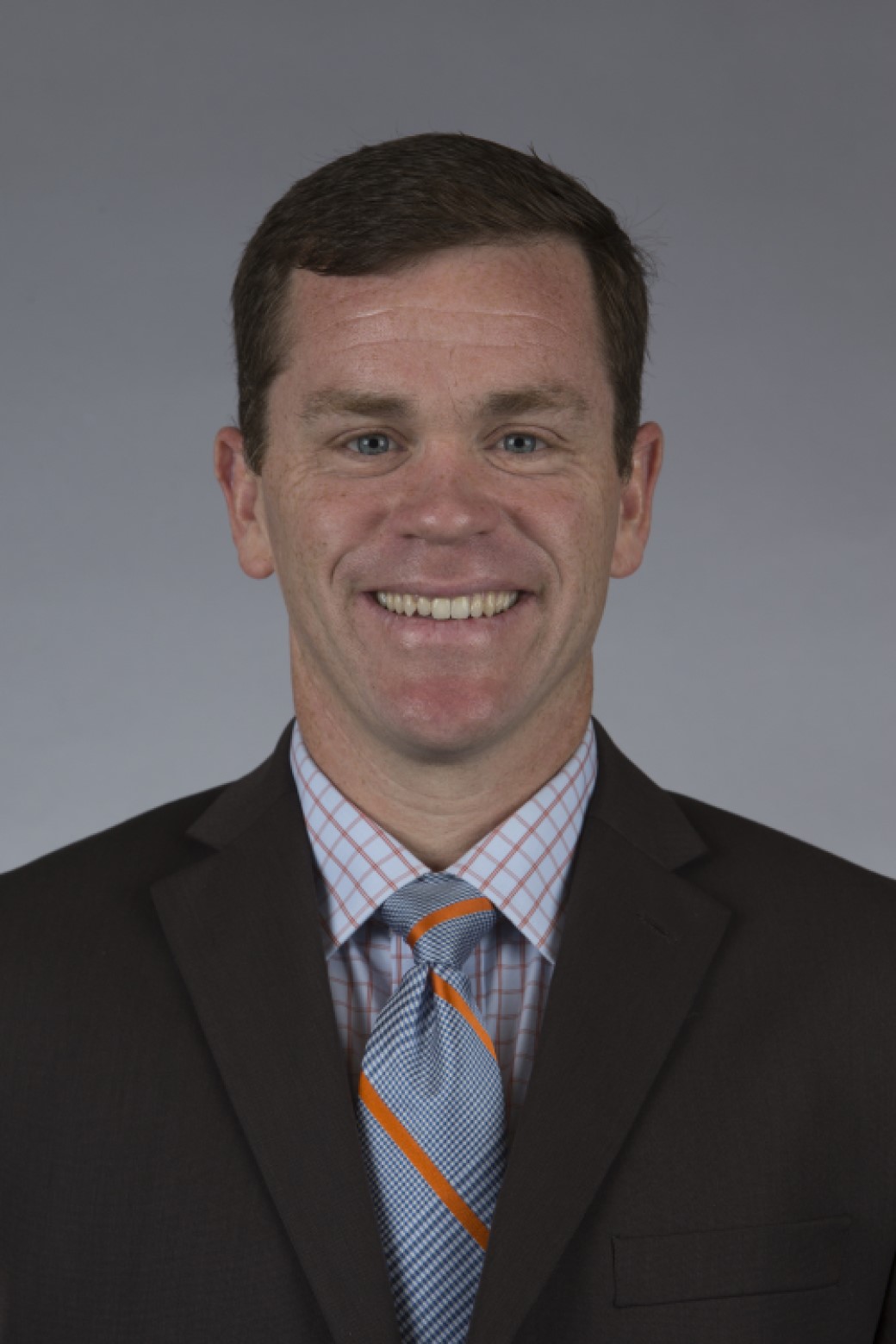
Ethics Education Project
Academic Year 2020-21
Developing a new case study for the SPMT 1000 Introduction to Sport Management with DFEI principles, develop class discussion and guest speakers for ethical applications.
Focus Area
Impact
- Hosting the World Cup or Improving Infrastructure- March 18th Ethics Roundtable
- 19 individuals were impacted. Compared DFEI principles and other ethical approaches common in sport tourism and management. Applied DFEI principles and other ethical approaches to complex ethical dilemma involving the intersection of mega events, sport tourism and community development.
- Using ethics in decision making - class lecture and activity
- 44 total individuals were impacted. Identified and summarized each of the DFEI principles. Compared DFEI principles with ethical approaches common in sport management. Applied DFEI principles and other ethical approaches to complex ethical dilemmas.
- Lance Armstrong ethics reflection - class lecture and activity
- 44 total individuals were impacted. Identified and summarized each of the DFEI principles. Compared DFEI principles with ethical approaches common in sport management. Applied DFEI principles and other ethical approaches to complex ethical dilemmas.
Resources
Mark Bacheldor, PGA, M.B.A.
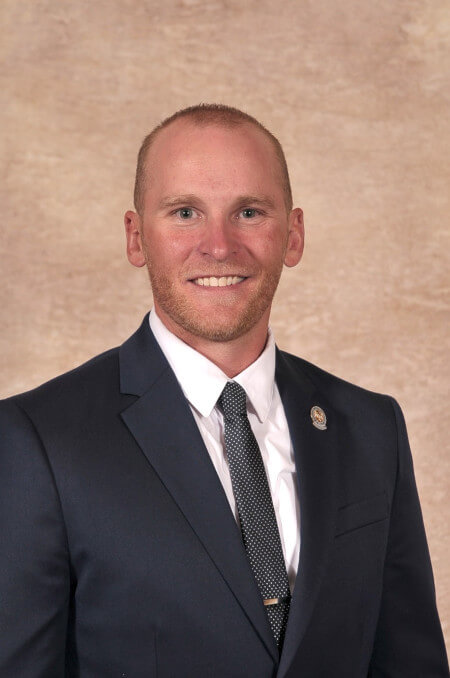
Ethics Education Project
Academic Year 2020-21
Integrate DFEI into all PGMT internship course (PGMT 1100, PGMT 2100, PGMT 2110, PGMT 4100, PGMT 4110), as well as PGA Program related activities to include the annual GMG Cup with NMSU (already a DFEI event) and monthly PGMSS meetings with leaders in the local/national community. The DFEI integration in the UCCS PGA Golf Management Program will include ethics-based speakers, training related to ethics and internship, career preparation and ethics, ethics in all golf competitions (7 events held each semester, plus 3 national events, also includes Player Development), and applicable practicum assignments related to the PGA curriculum. Particularly, this will be evident in PGMT 4203, which is under development and set to be delivered each Spring starting Spring 2022. This capstone PGA course will require the students to apply their knowledge of the PGA curriculum to develop a model golf facility; DFEI principles will be required in the Mission/Vision and culture of the model.
Focus Area
Impact
- November Ethics Roundtable Presentation
- "The Spirit of The Game"
- Courses integrated with Ethics:
- PGMT 1100 Cooperative Internship Level 1 - 13 students impacted
- PGMT 2100 Cooperative Internship Level 2 - 18 students impacted
- PGMT 2110 Cooperative Internship Level 2 - 7 students impacted
- PGMT 4100 Cooperative Internship Level 3 - 10 students impacted
- PGMT 4110 Cooperative Internship Level 3 - 2 students impacted
- Tournament Ethics Agreement
- All UCCS PGA Management students are required to sign and adhere to the Tournament Ethics Agreement.
Resources
Gedare Bloom, Ph.D.

Ethics Education Project
Academic Year 2020-21
Develop a course module and online videos for ethical principles in cybersecurity focusing on the ethics of penetration testing and of responsible disclosure.
Focus Area
Impact
Remote Learning of Ethical Decision-Making in Cybersecurity
Resources
Philip Brown, Ph.D.

Ethics Education Project
Academic Year 2020-21
Promoting Ethics in Socio-Technical Interactions through Teaching and Public Lectures - to bring public awareness to an emerging area in the ethics of technology in which the interactions between autonomous agents (e.g., AI social media participants) and humans can be designed to promote positive social impacts. Courses: CS 4370/5370.
Focus Areas
Impact
- Engineers who make Selfish Machines
- DFEI Roundtable: April 15th Ethics Roundtable Presentation PowerPoint
- Held a public lecture in the UCCS "Philosophy in the City" series.
- Exposed students to the ethical principles and the importance of ethics in CS 2150, CS 5720, CS 4730 and CS 5730. Combined he impacted over 50 students with the knowledge of the ethical principles.
Resources
Mary Fortson-Harwell, Ph.D.
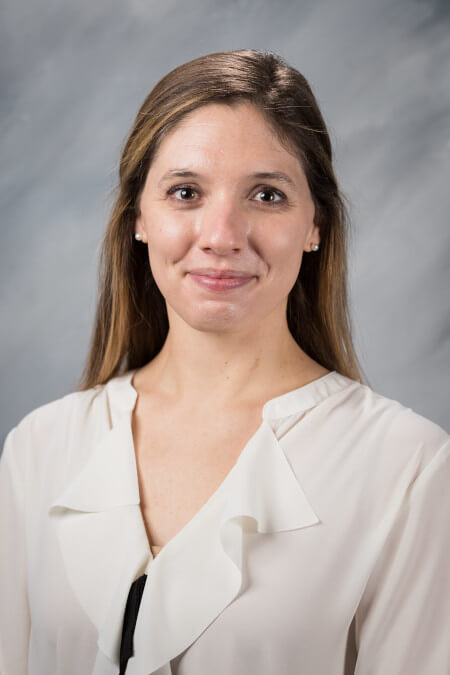
Ethics Education Project
Academic Year 2020-21
Ethical Principles in Social Work Practice: The intent of this project is to conduct a series of ethics training opportunities for students and community members during the 2020-2021 academic year. These training opportunities include integrating DFEI ethical principles and the NASW (National Association of Social Workers) Code of Ethics training into our new field instructor orientation and new student orientation, as well as holding a full-day ethics workshop during the Spring semester, which will be open to students and community members.
Focus Areas
Impact
September Ethics Roundtable Presentation
September Ethics Roundtable Video
Resources
Deborah Kenny, PhD, RN, FAAN
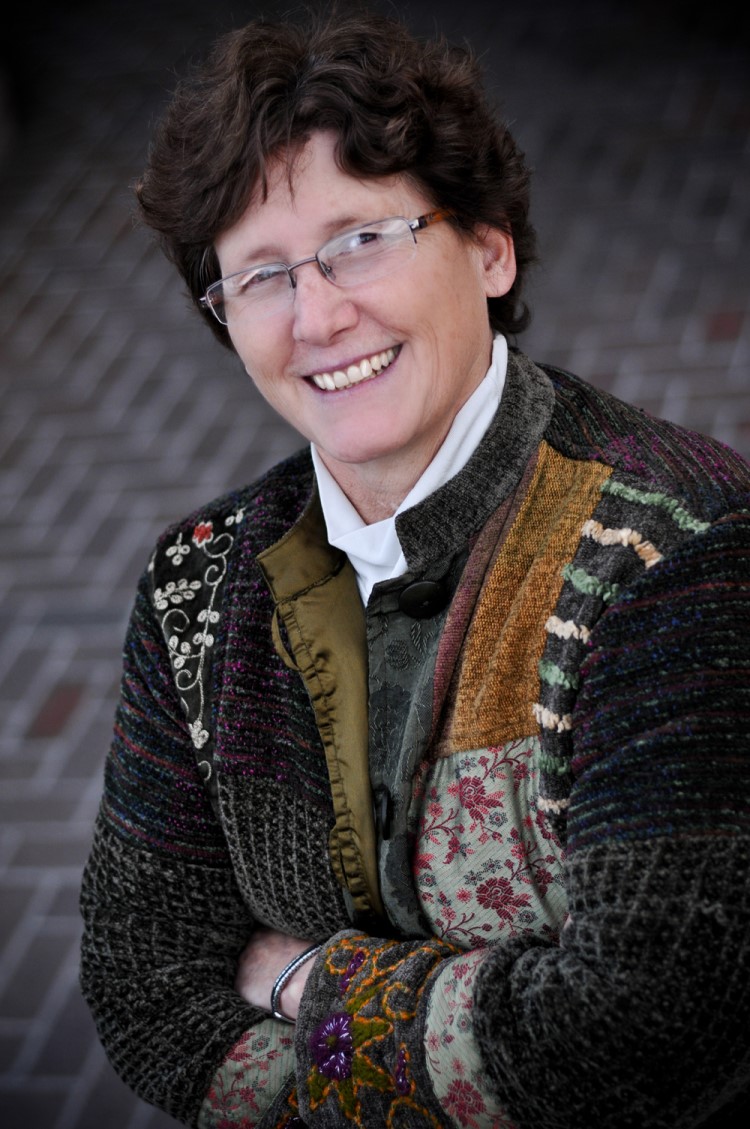
Ethics Education Project
Academic Year 2020-21
The purpose of the project will be to integrate a module on Universal Ethical Principles into NURS7100 Organizational Systems Leadership. This module will be framed from a healthcare organizational leadership point of view and the ethical choices that leaders in today’s healthcare world need to make. Because leaders must operate interprofessionally, it is hoped this pilot module will lead to the opportunity to provide interprofessional education in the realm of leadership ethics and ethical principles.
Focus Areas
Impact
- October Ethics Roundtable Presentation
- Dr. Deborah Kenny taught the Online Graduate Nursing Leadership and Organizational Systems Class in both the Fall (2020) and Spring (2021) term. She dedicated a two week module in her course to leadership ethics which impacted 14 doctoral nursing students.
Resources
Dan Lykins, M.B.S.
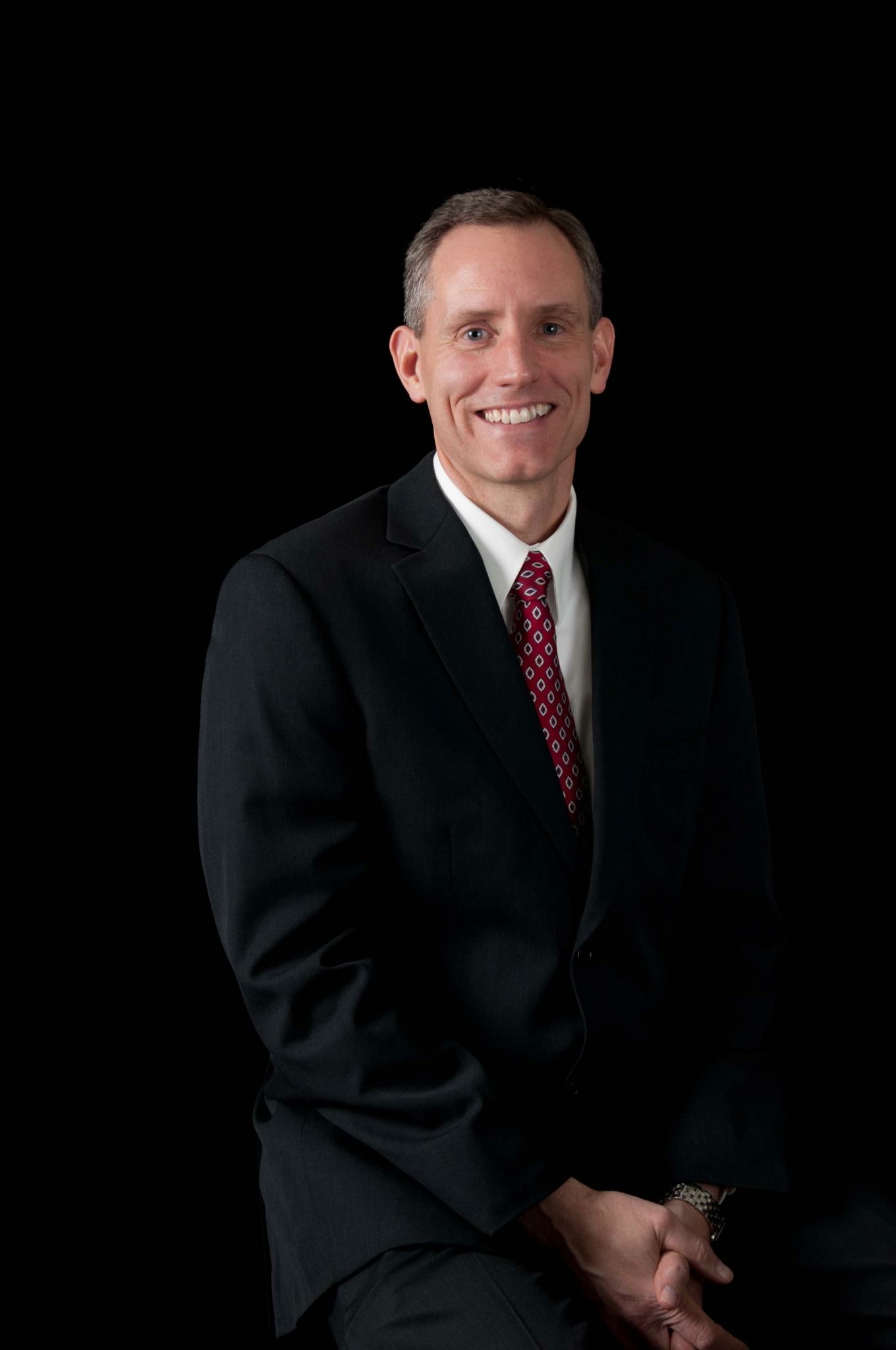
Ethics Education Project
Academic Year 2020-21
Develop a compelling teaching tool for HPNU 2020 (Human Anatomy and Physiology II, spring) to parallel and extend the HPNU 2010 (Human Anatomy and Physiology I, fall) experience (centered on coughing and sneezing) in order to introduce and reinforce ethical principles in the area of hand hygiene for health care workers.
Focus Areas
Impact
Ethical Impact of Even the Smallest Tasks of Our Days: Teaching the Need for Hand Washing
Resources
Bradford Monson, MSA, J.D.
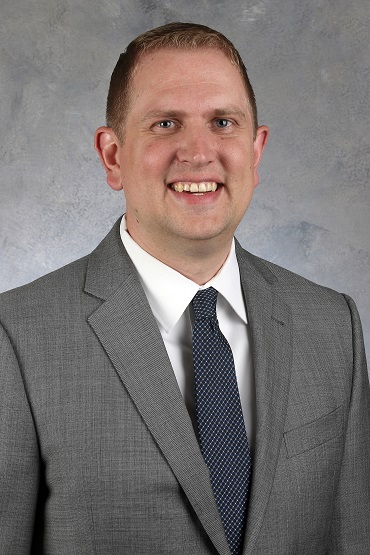
Ethics Education Project
Academic Year 2020-21
Integrate the DFEI ethical principles into Business Law 2000.
Encourage and support a legal ethics event in the campus Pre-Law Society.
Focus Areas
Impact
December Ethics Roundtable Presentation
Resources
Daniel Olson, J.D.
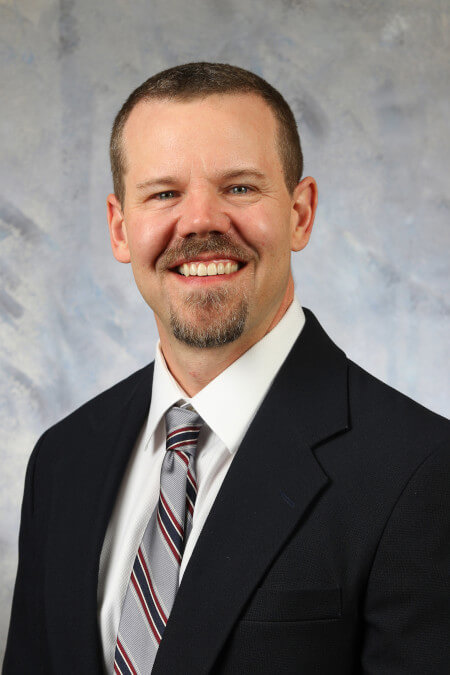
Ethics Education Project
Academic Year 2020-21
Develop a criminal justice re-entry simulator that fully integrates the DFEI ethical principles in which student play the role of an inmate recently released from correctional custody.
Develop a Mock Trial curriculum on ethics in courtroom, legal knowledge, litigation skills and the intersection of law, ethics & courtroom.
Course redesign of CJ 4121, Ethics in Criminal Justice from learning as a DFEI Ethics Fellow.
Focus Areas
Impact
- Learning from Others: Why it's Worthwhile to Compare Ethical Approaches Across Disciplines - DFEI Roundtable Discussion
- Ethics in Medicine, Criminal Justice, and Business: Competing Ethical Perspectives Panel
- Multi-disciplinary panel discussion of ethical approaches and ethical dilemmas. 33 individuals impacted.
- Daily Dilemmas - Classroom Lecture and Activity.
- Identified and summarized each of the DFEI principles. Compared DFEI principles with ethical approaches common in medicine and criminal justice. Applied DFEI principles and other ethical approaches to complex ethical dilemmas. Impacted 29 individuals.
Resources
Cortny Stark, Ph.D.
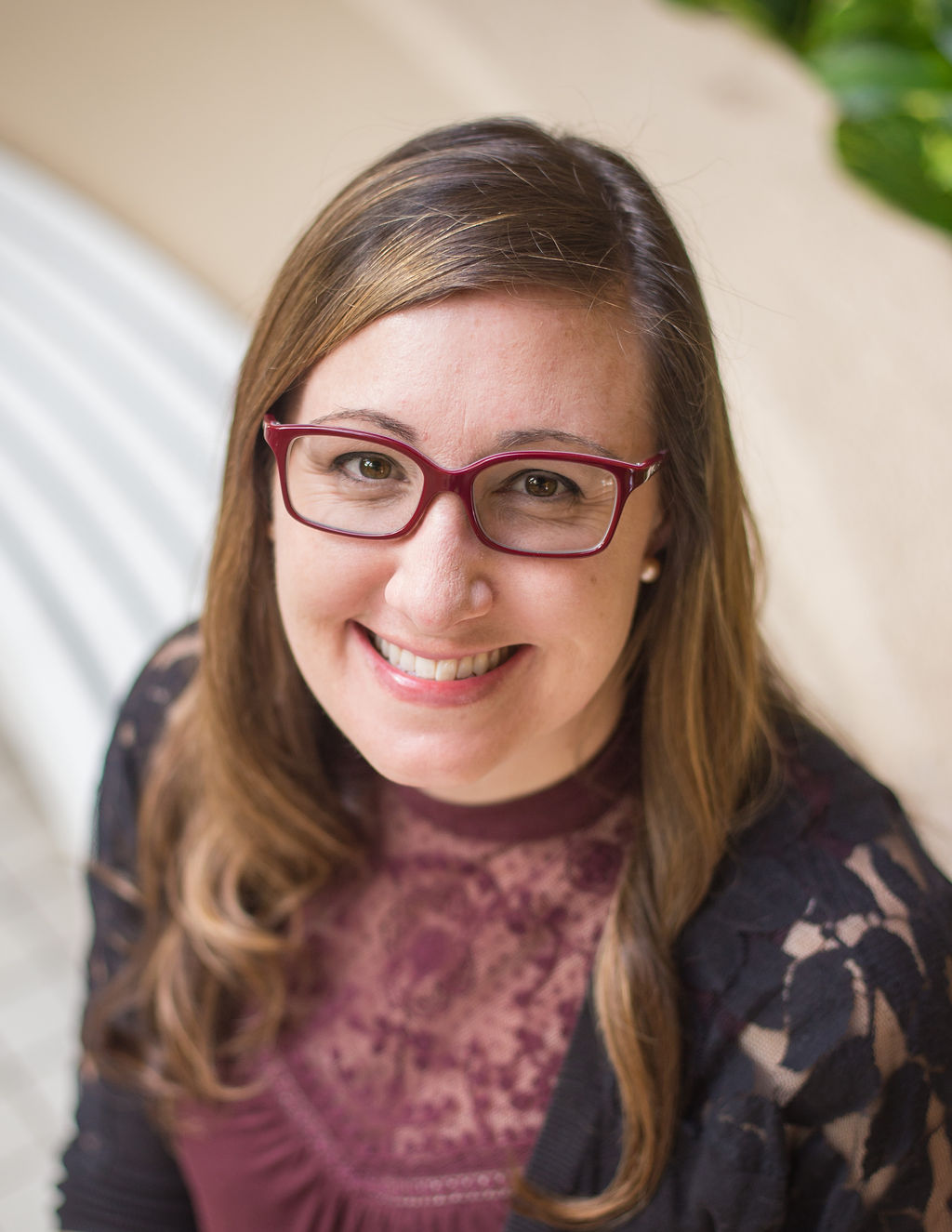
Ethics Education Project
Academic Year 2020-21
Trauma-informed Ethical Decision-making: Implementing a Multidisciplinary Curriculum
In the post COVID-19 world, educators have an ethical responsibility to employ a trauma-informed approach in the classroom and teach students how to utilize a trauma-informed lens in their fields of practice. During the 2020 to 2021 academic year, I plan to implement a series of lessons on trauma-informed ethical decision-making in each of my three counseling and human services courses, which include COUN 4900/5900 The Science of Behavioral and Process Addictions, COUN 5720 Internship (mental health counseling), COUN 2990 Addiction Counseling Skills. I will also collaborate with the instructors for other counseling and human services courses, and the CJ 4121 Ethics in Criminal Justice, to share this curriculum.
Focus Areas
Impact
- Ethical Considerations in SUD Counseling & Trauma-Informed Ethical Decision-Making
- Class lecture and activity with the UCCS COUN 2990 Addiction Counseling Skills class.
- Trauma-Informed Ethical Decision-Making
- (09/22/2020) Lecture and activity with the UCCS Criminal Justice Program. Impacted 22 individuals.
- (09/24/2020) Class Lecture and activity with UCCS COUN 5720 Counseling Internship Class. Impacted 12 individuals.
- (10/01/2020) Lecture and activity with the UCCS Criminal Justice Program. Impacted 45 individuals.
- (10/15/2020) Class lecture and activity with UCCS Campus Connections Practicum class. Impacted 20 individuals.
- (12/09/2020) Class lecture and activity with UCCS COUN 4900/5900 Process Addictions Class. Impacted 22 individuals
- "The Trauma-Informed Ethical Decision-Making Model: An Integrative Framework"
- Submitted conceptual manuscript - Publication in The Journal of Trauma Studies in Education
- "Trauma-informed Ethical Decision-Making in the Post COVID-19 World"
Resources
Meghan Stidd, Ph.D.
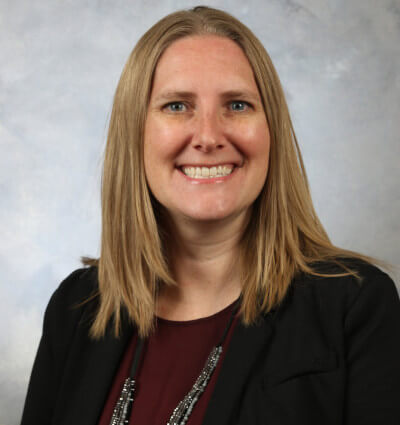
Ethics Education Project
Academic Year 2020-21
Integrate the DFEI ethical principles into BUAD 3100, BUAD 3200, and BUAD 3300 - the College of Business ROAR Program. Include modules specifically related to the DFEI ethical principles. Also incorporate the DFEI ethical principles in the ROAR mentor training (business professionals mentoring our ROAR students).
Focus Areas
Impact
- "The Importance of Values in Career Development"
- Dr. Meghan Stidd worked on implementing ethics into the ROAR program here at the College of Business. The ROAR program is a career development program that all undergraduate students take. Within the three, one credit hour courses she created a module dedicated to ethics. These modules impacted over 600 students.
Resources
Elena Svetieva, Ph.D.

Ethics Education Project
Academic Year 2020-21
Create table-top case exercises to be used in any leadership communication course from the vantage point of smaller organizations in the southern Colorado region.
Focus Areas
Impact
Ethics Roundtable Presentation
Resources
Robert von Dassanowsky, Ph.D.
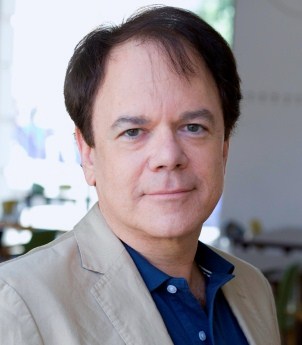
Ethics Education Project
Academic Year 2020-21
Cinematic Ethics
Integrate the DFEI ethical principles into FILM 1000: Introduction to Film Studies (Fall 2020) and FILM 4252: Kubrick (Fall 2020) and develop a new FILM 3000-level course on ethics in Film (Studies) tentatively titled FILM 3900: Special Topics in Film Studies: Cinematic Ethics (to be taught in Spring 2021).
Focus Areas
Impact
To be provided
Resources
Paige Whitney, MSc
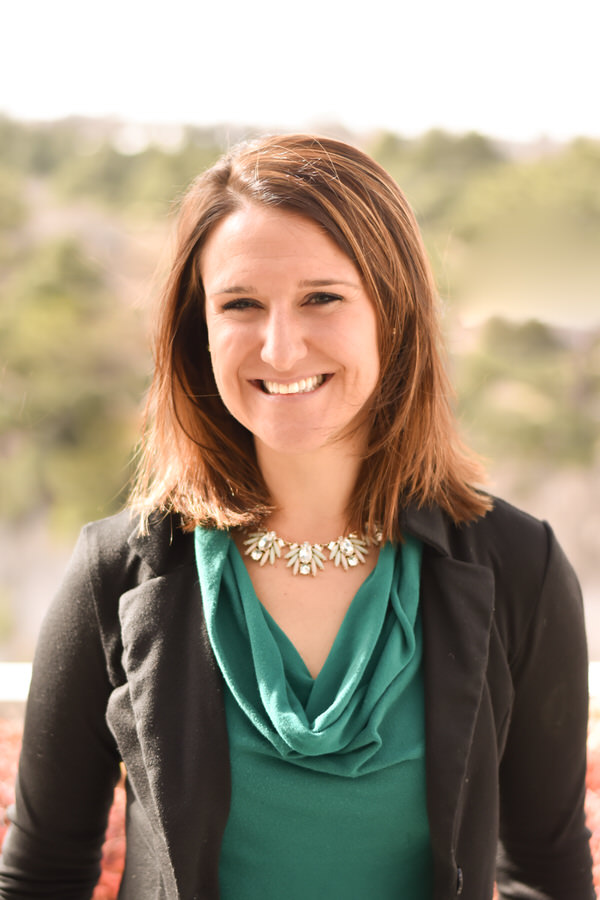
Ethics Education Project
Academic Year 2020-21
Integrate DFEI principle-based ethics into Johnson/Beth-El Health Science 5100 Introduction to Interprofessional Education. Interprofessional Education has been identified as a curricular focus for college. There has been discussion that this one credit course (HSCI 5100) could be added into the undergraduate nursing curriculum in addition to health sciences where it currently is taught.
Focus Areas
Impact
April 20th Ethics Roundtable Presentation
Ethics: A Catalyst for Interprofessional Education & Teamwork
In Fall 2021 Paige attended The NEXUS Summit which is an international conference for healthcare students, educators, providers, policy makers, and more to work and learn from, with, and about each other to drive the work that is being done to change practice, education, and health. The conference is put on by the National Center for Interprofessional Practice and Education. While attending the conference Paige presented her poster on "Ethics: A Catalyst to Interprofessional Education & Teamwork": Whitney NEXUS Poster
Resources
Todd L. Bredbenner, Ph.D.

Ethics Education Project
Academic Year 2019-2020
He will be teaching three courses in the Mechanical and Aerospace Engineering Department and proposes to incorporate case studies and opportunities for discussion and guidance related to ethical issues in engineering and developing ethical decision-making skills in each class. Discussion of ethical issues will be integrated into course content with the intent to promote the Daniels Fund Ethics Initiative (DFEI) Principles, particularly Integrity, Trust, Accountability, Transparency, Rule of Law, and Viability, by allowing students to determine for themselves and collaboratively how these principles relate to the case studies. He plans to use a group voting approach to allow students to first form their own opinion on how cases relate to the Ethics Initiative Principles and, subsequently, to learn the opinions of their peers in an anonymous manner. He also plans to lead classroom discussions of the Principles involved in engineering applications and what the students might do if exposed to similar situations in their academic or professional careers.
In Fall 2019, he will be teaching Musculoskeletal Biomechanics (MAE 4405 / 5405), an upper undergraduate level and graduate level course in Musculoskeletal Biomechanics (with expected combined enrollment of 25 students) and Constitutive Modeling (MAE 9510), a newly-developed graduate level course with expected enrollment of 6-10 students. In Spring 2020, he will be teaching Statics (MAE 2130), a foundational lower-level class of approximately 50 students. He proposes to incorporate consideration of ethical issues during the 2019-2020 Academic Year and to continue including the material developed during my Ethics Initiative project in future courses that he teaches. He also plans to share this material with any interested parties by making it accessible through the Daniels Fund Ethics Initiative or through my own to-be-developed website.
Focus Areas
Impact
To be provided
Resources
Juan M. Gallego-Toledo, Psy.D., MIM, PMP
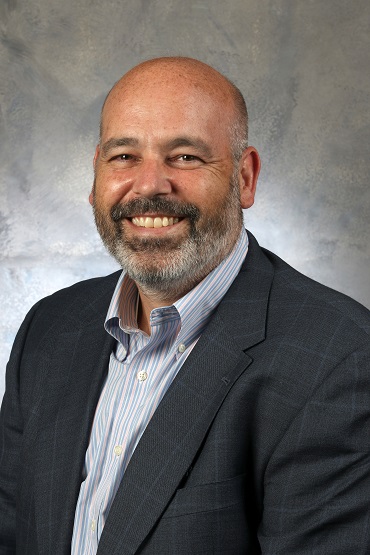
Ethics Education Project
Academic Year 2019-2020
He will amplify the DFEI teachings and learning, focusing on actively promoting the seven principles through (1) student learning in the classroom, (2) outreach to other educational institutions and community constituents, (3) by contributing and actively participating in the Daniels Funds Ethics Consortium, and (4) promoting the involvement of student in the business community.
Focus Area
Impact
Impact of Class and Online Activities (Fall 2019-Spring 2020)
Fall 2019
MKTG3300 – 43 students
MKTG4800 - 23 students
STRT4500 – 38 students
Spring 2020
MKTG3300 – 58 students
MKTG4800 – 24 students
Ethical Case Study Analysis
47 students
Communicating the DFEI principles as part of our guidelines to conduct our project with local business (the names of the businesses are included in the presentation)
Fall 2019 – 7 local businesses
Spring 2020 – 13 local businesses
Resources
Jennifer Kling, Ph.D.
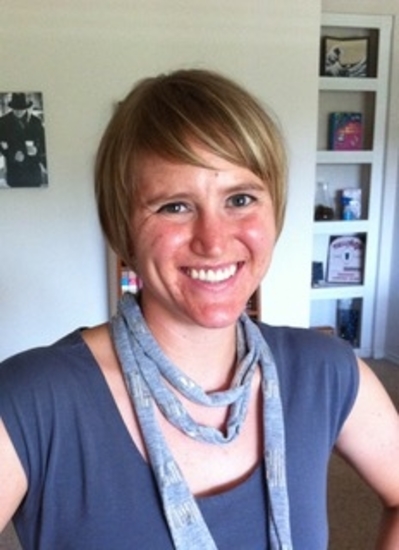
Ethics Education Project
Academic Year 2019-2020
The project she intends to undertake in the 2019-2020 academic year is the creation of a UCCS Ethics Bowl Team. Ethics Bowl is an intercollegiate, undergraduate competition where teams from various colleges and universities debate and discuss complex, real-world ethical challenges in an attempt to determine what we ought to do about them.
To prepare for the Ethics Bowl competitions, teams learn about a variety of ethical frameworks, including the eight Daniels Fund Ethics Initiative Principles, study the importance of using principle-based ethics, investigate the implications of taking up and using particular ethical lenses in practical decision-making, discuss the various cases that will be debated during the competition, and decide as a team which ethical positions the team wants to take in regards to the cases, and why. The focus of the competition is on ethical decision-making within a principled framework; thus, teams are expected to support their conclusions using philosophical and ethical argumentation and theory, as well as practical and empirical supporting information. Ethics Bowl is thus tied not only to the academic discipline of Philosophy, but also to Psychology, Sociology, Business, and Political Science.
Focus Area
Impact
To be provided
Resources
Kevin Landis, Ph.D., M.F.A
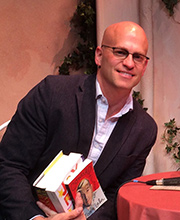
Ethics Education Project
Academic Year 2019-2020
Kevin Landis is making a major change for his Prologue Lecture Series that even more clearly evidences its affinity with The Daniels Fund Ethics Initiative Principles. Student learning about ethical issues in the arts is paramount. Each talk is paired with individual discussions and workshops for students. In the next school year, he will be using Prologue to platform the following five talks, with plans to add other talks as needed:
• Curating the Political Divide- A conversation that explores the nuances of curating art in a conservative-leaning community. How does art support a community while espousing the natural progressiveness inherent in artistic creation? Panelists will include artistic directors and curators of theatres and museums in Colorado Springs (September).
• Mobile Shakespeare and the Community- Using his own connection to the world-famous Public
Theater in New York, this Prologue will look at the importance of reaching out to community in the creation of art. Mobile Shakespeare is a program started in New York that acknowledges theatre as an inherent social good and sees its mission to take art directly to underserved communities (lower socioeconomic
class neighborhoods, prisons, community centers, etc). He has invited the two leaders of Mobile Shakespeare in New York to join with our community and students to discuss this pressing need and strategize about our plans (in conjunction with Theatreworks) to implement some of these missions in Southern Colorado (October).
• Updating Problem Plays- featuring one of the most famous playwrights in America, David Henry Hwang, this discussion will focus on race and class and, specifically, the need and challenge of updating 19th century plays. Hwang’s M Butterfly will be discussed along with racially and religiously fraught classics like Octoroon, Merchant of Venice and Uncle Tom’s Cabin (November).
Focus Area
Impact
To be provided
Resources
Nanna Meyer, Ph.D.,RD, CSSD, FACSM
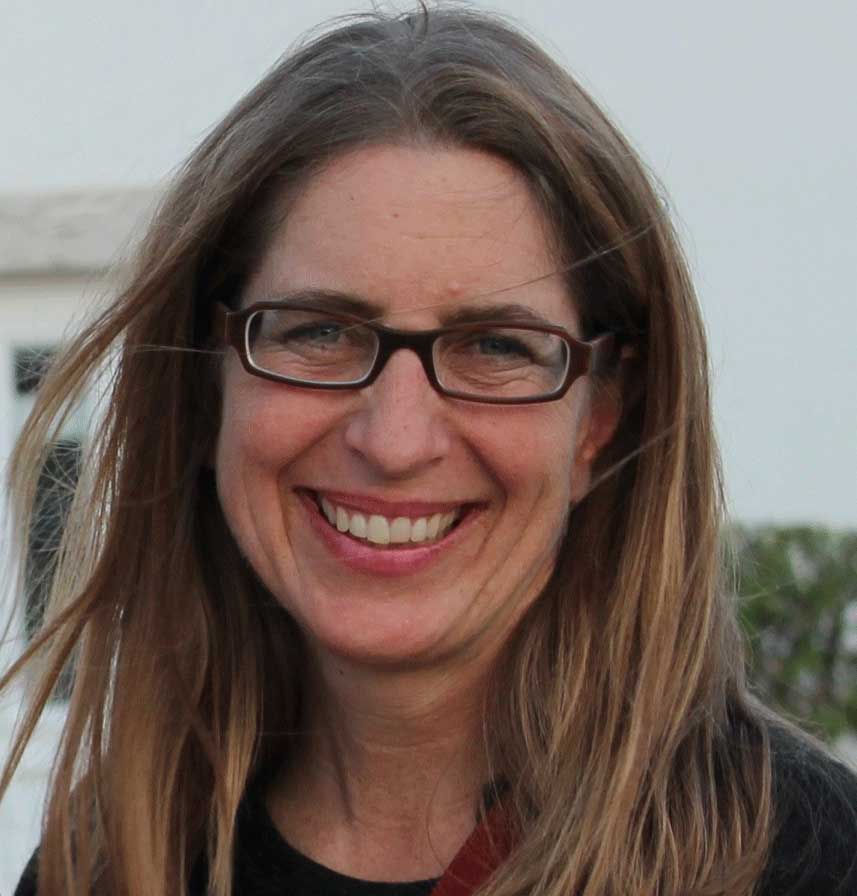
Ethics Education Project
Academic Year 2019-2020
She proposes to continue the dissemination process of TrueFood for TrueSport materials through our campus Dining and Hospitality Services (DHS) supported Flying Carrot Mobile Food Literacy Project. The next steps in dissemination of this program will include the development of TrueFood courses for athletes, teams and families. These will be offered through the UCCS Farmhouse and the Lane Center Teaching Kitchen, with launch this coming fall. TrueFood materials will also be of key importance once the HYBL Sport Performance building opens in the fall of 2020. In fact, it is proposed that the HYBL Café will be named “The Athlete’s Plate” which will integrate the ethical principles of food as developed through the TrueFood project. This will ensure a long-lasting impact of the TrueFood Initiative on students, faculty, staff, and the greater Colorado Springs and Southern Colorado community. We are in the process of trademarking the Athlete’s Plate and copyrighting the TrueFood placemat.
Focus Area
Impact
To be provided
Resources
2020 February Ethics Roundtable
Diane Stutey, Ph.D, RPT-S, LPC, NCC

Ethics Education Project
Academic Year 2019-2020
Diane Stutey is planning to share with others what she has learned about the ethical considerations of working with children and adolescents and how to apply these lessons to working with students at the university level. In addition, she hopes to expand and develop her knowledge of ethics and how other faculty infuse this into their teaching, scholarship, and research.
Focus Areas
Impact
COUN 5700 (Sec 001 and 002), Internship in School Counseling
Number of students – 20 graduate students in Counseling and Human Services
This is a counseling internship course and all of the students are working 600+ hours in the K-12 school setting in and around El Paso county.
COUN 4950, Practicum in Counseling and Human Services
Number of students– 14 undergraduate students in the fall, 23 undergraduate students in the spring; Abigail Solis, DFEI student ambassador, co-taught class in the Spring.
This is a practicum in counseling and human services course for undergraduate students. All of the students are working as 1:1 mentors with at-promise middle school youth in the UCCS Campus Connections Therapeutic Youth Mentoring program.
Innovative ethics lesson: Using the Daniels Fund Ethics Initiative (DFEI) ethical principles on the poster boards, students split into groups to discuss how the ethical principle they had applied to their work with K-12 students or middle school youth, especially as school counselors or youth mentors. A large group discussion about each of the DFEI ethical principles followed.
Resources
Katie Sullivan, Ph.D.

Ethics Education Project
Academic Year 2019-2020
Katie Sullivan plans to bring ethical considerations to her courses and assist student learning regarding how ethical decision-making impacts strategic communication, organizations, and communities. Her project will contribute to enhancing student learning, by developing lecture materials, new assignments, and case studies in the following courses: COMM 3350 (Integrated Marketing Communication), COMM 4250/5250 (Advanced Organizational and Strategic Communication), and COMM 4050/5050 (Managing Social Media).
Focus Area
Impact
To be provided
Resources
December 2019 Ethics Roundtable "The words you Tweet become the house you live in: Exploring social media ethics as a means of training wholehearted communicators"
Tom Wahl, MA
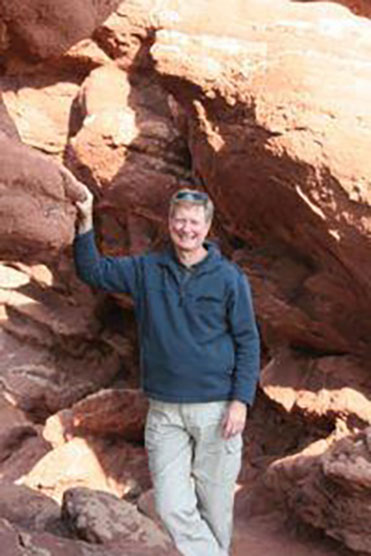
Ethics Education Project
Academic Year 2019-2020
The project Tom Wahl plans to implement as a DFEI Fellow would be in Business and Administrative Writing (TCID 2080). In this course we expose students to the genres and style of writing in the professional world. As part of this, he includes instruction on creating visual information, such as infographics, graphs, and charts for reports and presentations. This is where he would implement an ethics project. Presenting visual information is a major part of professional writing. However, when presenting information visually, writers have to be careful not to misrepresent or misreport the complete picture. Given this, ethically providing visual information is vital for students to understand.
Focus Area
Impact
Information Design & Students' Ethical Awareness
Resources
Bob Cook, MBA
Ethics Education Project
Academic Year 2018-2019:
Enhanced the existing INFS3000 course material to expand upon the ethical challenges and dilemmas faced by organizations today with the large amount of data and individual analytics that these organizations now maintain. Specifically:
- Ethics and Technology: Expanded upon the challenges organizations face regarding what information is now stored for their customer base. How is this information stored and protected? How is this information used to the benefit of the organization? What transparency should/does exist to make users aware of the amount, type, and use of this data to the company’s user base. Integrity, Trust, Transparency, Rule of Law.
- Ethical responsibilities of organizations with large data sets during and following data breaches. What is the organizations ethical responsibility to those customers whose data was exposed? Accountability, Transparency, Trust, Rule of Law.
- What are the ethical and moral risks to an organization that allows the data they’ve collected to be used by third parties for advertising purposes. What ethical obligation does the organization hold in notification and transparency to their users? Integrity, Trust, Accountability, Transparency, Fairness, Respect, Viability
Focus Areas
Impact
To be provided
Resources
Contact: rcook2@uccs.edu
Amanda Elder, EdD, ATC

Ethics Education Project
Academic Year 2018-2019
Creating a series of learning opportunities that would be incorporated across the MS Athletic Training (MSAT) curriculum to emphasize ethical decision making at is relates to the athletic trainer as a member of the health care team and athletic organization. The MSAT program will begin in Fall 2018 with 5 “core” classes in which I anticipate this series of assignments would be implemented. The series would start with ethical foundations as it relates to athletic training and the National Athletic Trainers Association’s Code of Ethics, progressing towards ethical decision making in a high-fidelity simulation. I would also like to explore how the Giving Voice to Values curriculum might fit into these opportunities.
Focus Areas
Impact
To be provided
Resources
Contact: aelder@uccs.edu
Tacy Killingsworth, M.A.
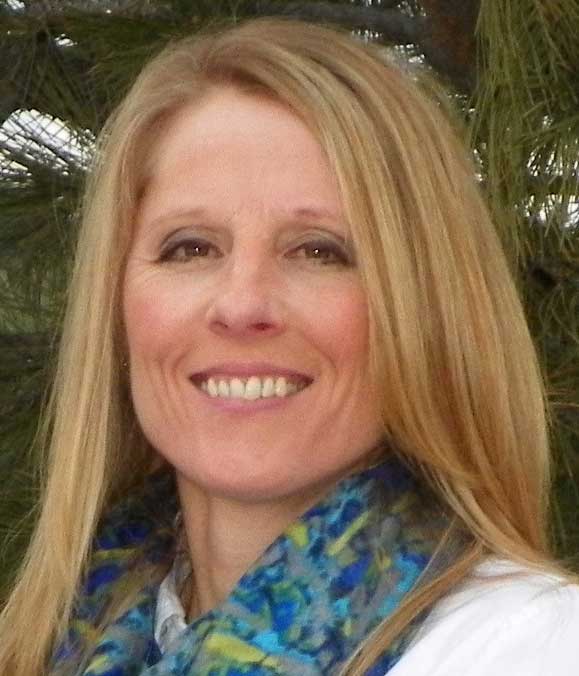
Ethics Education Project
Academic Year 2018-2019
As an educator for 25 years, I have come to realize that the teacher evaluation system is often not utilized in a way that supports teacher growth through authentic observations and feedback. I want to explore how to support current and potential educational leaders in understanding the importance of ethics in the teacher evaluation process to include but not limited to:
- Establishing criteria for the teacher evaluation process that will work well within their school community to include developing the roles and responsibilities for leaders and for teachers throughout the process
- Conducting classroom visits consistently and fairly
- Exploring various observation tools to gather factual data regarding the classroom environment and instructional strategies being utilized
- Developing a system to provide effective feedback based on the 7 Keys to Effective Feedback
- Unpacking the teacher evaluation rubric to gain a clear understanding of what each standard means in action as well as supporting teachers in understanding the expectations
- Using data to determine how to provide differentiated professional development, coaching and mentoring to support various needs of teachers
Through capitalizing on each of these areas, we will be specifically considering the moral principles that govern us as leaders in education to support and grow teachers to reach their full potential. We will explore the Statement of Ethics for School Administrators and relate this to the work in each of the above-mentioned categories.
Policy Statement 1100.2 Statement of Ethics for School Administrators
An educational administrator's professional behavior must conform to an ethical code. The code must be idealistic and at the same time practical, so that it can apply reasonably to all educational administrators. The administrator acknowledges that the schools belong to the public they serve
for the purpose of providing educational opportunities to all. However, the administrator assumes responsibility for providing professional leadership in the school and community. This responsibility requires the administrator to maintain standards of exemplary professional conduct. It must be recognized that the administrator's actions will be viewed and appraised by the community, professional associates and students. To these ends, the administrator subscribes to the following statements of standards.
The educational administrator:
- Makes the well-being of students the fundamental value in all decision making and actions.
- Fulfills professional responsibilities with honesty and integrity.
- Supports the principle of due process and protects the civil and human rights of all individuals.
- Obeys local, state and national laws and does not knowingly join or support organizations that advocate, directly or indirectly, the overthrow of the government.
- Implements the governing board of education's policies and administrative rules and regulations.
- Pursues appropriate measures to correct those laws, policies and regulations that are not consistent with sound educational goals.
- Avoids using positions for personal gain through political, social, religious, economic or other influence.
- Accepts academic degrees or professional certification only from duly accredited institutions.
- Maintains the standards and seeks to improve the effectiveness of the profession through research and continuing professional development.
- Honors all contracts until fulfillment or release.
Focus Areas
Impact
To be provided
Resources
Ethics Roundtable
Ethical Teacher Evaluations - Making Friends or Enemies? (PPT)
Contact: tkilling@uccs.edu
YongJei Lee, Ph.D.
Ethics Education Project
Academic Year 2018-2019
The revision of two existing courses that would help the development of ethics awareness in the fields of criminal justice and criminology during the 2018-2019 academic year at UCCS. These two courses are CJ 3170 Crime Prevention and Analysis and CJ 5010 Mapping and Analysis for Public Safety. Establishing strong ethical principles and training students to build ethical standpoints are very important in these courses as students use real crime data provided by law enforcement agencies from different cities, such as Chicago, Pittsburgh, Cincinnati, and Colorado Springs. While analyzing and modifying these data sets in class, students are extensively exposed to information to which general public cannot usually access, such as household demographic factors, crime locations (addresses), police officer’s badge number, and the type of crime occurred.
Students must write a final research paper from their data analysis and crime mapping, even if they are not supposed to release specific information in the data set to the general public. Therefore, in the final paper, it is important to address where the data came from, how the data was secured, and what information was selected (or screened) to protect the privacy and security of the observations in the data set. Students need to learn how to address these ethical points in their final reports.
- Students will have a mandatory reading list of ethical issues. After in-class discussion about the contents in these reading materials, students should submit a review paper as their mandatory assignment.
- Students will incorporate a specific section, a Research Ethics section of Research Strategy chapter, in their final research paper. In this section, students should address and ensure how issues of research ethics are properly taken into account. Students should also make sure that they have considered the DFEI ethical principles and how research ethics are influenced by their chosen research strategy. Finally, students will need to attach an Ethics Consent Form at the end of their research paper, if needed.
Focus Areas
Impact
To be provided
Resources
Articles and News
Rory Lewis, Ph.D., JD

Ethics Education Project
Academic Year 2018-2019
Developing a means to develop a fair and very explicit methodology to discern between individuals who intentionally violate ethical standards and to those who unintentionally violate ethical standards.
Computer Science graduate students who will be leaders in the field will use the methodology to help them to recognize their own potential for ethical violations and manage/lead so that their staff/students reduce rationalizations for intentional ethical violations (and be able to tell the difference).
Faculty will have a better understanding when student ethical violations would be responsive to educational approaches or escalation to disciplinary process.
Focus Areas
Impact
To be provided
Resources
Articles and News
Jian James Ma, Ph.D.

Ethics Education Project
Academic Year 2018-2019
1. Integrate the awareness of data privacy and security in the INFS 3400 course, Database Management. The focus will be on the field of health informatics or health IT. Relevant case studies and discussions will be developed and incorporated in the class lectures and homework.
2. Host the discussion board for Denver Chinese School (DCS) at Highland Ranch, CO. Presentations will be conducted to identify ethics related scenarios in the academic world for first- or second-generation immigrants from China. Discussions will be developed to help with the decision-making process for Chinese community members in the higher education environment. Some examples of topics include understanding the importance of copyright and seriousness of plagiary, etc. This effort will help reduce misunderstanding and conflict between Chinese immigrants and the educational system in the US.
Focus Areas
Impact
To be provided
Resources
Ethics Roundtables
April 2019 Ethics Roundtable
Articles and News
Faculty Profile: Jian "James" Ma has been teaching since he was a boy
Contact: jma@uccs.edu
Jeffrey Montez de Oca, Ph.D.
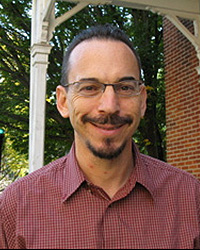
Ethics Education Project
Academic Year 2018-2019
Place principles of integrity, trust, accountability, transparency, fairness, respect, and rule of law at the center of two courses, Modern Sociological Theory and Sociology of Popular Culture.
The course Modern Sociological Theory focuses on the importance of ethical conduct in modern democracies. Sociology of Popular Culture explores tensions that emerge from media’s ethical function in a democracy and its profit orientation in a free market. Students will explore the promises and pitfalls of “ethical business practices” and “ethical consumption”. Students will work on group based projects on cultural institutions, such as museums, theme parks, music venues, sports facilities, etc., in order to explore the relationship between popular culture and citizenship. Specifically, the relationship between organizations (cultural institutions) and learning the ethical conduct of citizenship. Further, questions of the ethical uses of media technologies will be raised.
Focus Areas
Impact
To be provided
Resources
Ethics Roundtables
April 2019 Ethics Roundtable
Articles and News
Regents Grant Faculty Sabbaticals
Montez de Oca Earns Book Award
My View: Football's Bigger Problems
Contact: jmontezd@uccs.edu
Mary Claire Wahl, DNP, APRN, CNM

Ethics Education Project
Academic Year 2018-2019
Integrate the DFEI principles and Giving Voice to Values approaches to values-driven leadership in nursing courses - NURS 4200 (Care of the Childbearing Family—for senior BSN students) and in NURS 6910 (Care of Acute Conditions & Women’s Health—for Nurse Practitioner graduate students).
- Undergraduate nursing students would review original perinatal ethical dilemma case studies and have a group assignment of walking through the steps of ethical decision-making, applying universal ethical principles in accordance with the ANA Code of Ethics and the DFEI.
- The Nurse Practitioner students would use similar case studies of perinatal ethical dilemmas and require application of ethical principles and decision-making to their new roles as health care practitioners in an organizational setting.
Some examples of ethical dilemmas which are unique to perinatal nursing and women’s health include: Maternal Versus Fetal Rights, Fetal Research, Reproductive Assistance (including ownership of unused embryos), and Stem Cell Research. Additional ethical considerations involve gender and racial determinants and inequities in women’s health care. Case studies would include situations where there is maternal-fetal conflict (such as forcing interventions on a pregnant woman in the best interest of the fetus, which infringes on the autonomy of the mother.)
Focus Areas
Impact
To be provided
Contact: mwahl2@uccs.edu
Kay Yoon, Ph.D.

Ethics Education Project
Academic Year 2018-2019
Enhance student learning of ethics by developing lecture materials, new assignments, and case studies for three courses: COMM 3150 (Communicating in Contemporary Teams), COMM 4900 (Virtual Teams), and COMM 2440 (Leadership Theory and Practice).
COMM 3150 and COMM 4900, are concerned with how to collaborate with others in team settings and involve students in multiple collaborative projects. Assignments will help students recognize how ethical principles are connected to team collaborations and push students to think about what form(s) the ethical principles such as integrity, accountability, and transparency might take in the context of team work when attempting to remedy or mitigate social loafing behavior.
COMM 2440 (Leadership Theory and Practice) is concerned with helping students acquire theoretical groundings for what takes to be an effective leader in the workplace and apply the theories to their own leadership development. Drawing on 1-2 case studies from recent scandals. Assignments will help students investigate, evaluate and prescribe the cases from the perspective of each of the eight ethical principles. To further enhance student learning in developing their abilities for ethical decision making, students will role play original hypothetical but realistic ethical dilemma scenarios that students are likely to encounter in school and at work. By completing the case studies and role play in this course, students will be able to apply ethical principles to real-world decision making.
Focus Areas
Impact
To be provided
Contact: kyoon@uccs.edu
Robert Block, Ph.D.
Ethics Education Project
Academic Year 2017-2018:
Developed curriculum and activities that involve "Student Learning" for the COB Precollegiate outreach summer camp. Develop activities that will emphasize students' ability to apply ethical principles in real-world decision making and the ability to identify ethical implications in real-world situations. The proposed curriculum development will include scenarios and real-world situations that revolve around the Daniels Fund Ethics Initiative Principles focusing especially on Integrity and Trust. The goal of the activities will be for student engagement and encouragement to realize that a college education is attainable. The activities will demonstrate the connection between ethics and success in life, business and academics.
Focus Areas
Impact
- 21 Educators
Resources
February 2018 DFEI Ethics Roundtable Presentation:
Ethics Integration in the College of Business Pre-Collegiate Outreach Summer Camp (PPT)
Articles and News
Assistant Professor, Computer Science Department [2017-2018]
Ethics Education Project
Academic Year 2017-2018:
I plan to incorporate ethics throughout the three computer security courses I teach at UCCS, spanned across the fall and the spring semester in 2017-2018. In addition to incorporating ethics throughout the classes at opportune lecture parts, for each course, I plan to incorporate 1-2 classes (lectures and student group discussions) to identify real-world situations with ethical implications and discuss about the history/incidents that drove computer security development. I would also share and present my experience integrating DFEI ethics in student learning with other people in DFEI.
Focus Areas
Impact
- 76 Students
- 19 Educators
Resources
November 2017 DFEI Ethics Roundtable Presentation:
Computer Security Offense and Defense - Best Practices (Video)
Susan E. Davis, RN, MSN
Ethics Education Project
Academic Year 2017-2018
Launching a new course Fall 2017 entitled Ethical Decision Making in Nursing. This course will meet all of the learning outcomes and objectives of the Daniels Fund Ethics Initiative (DFEI). Student learning will encompass tackling such ethical issues as end of life decisions, advance directives, living wills and other issues that are common in nursing today. Students will apply ethical principles and theories to these issues. This will also include becoming familiar with the Ethics committees in hospital organizations and their role in nurse/patient/doctor ethical issues and ethical decisions. This course is open to current undergraduate baccalaureate nursing students, accelerated nursing students and the RNBSN program which includes students from other campuses up and down the front range of Colorado as well as students from across the country.
Focus Areas
Impact
- 19 Educators
Resources
Ethics Roundtables
November 2017 Ethics Roundtable:
Ethical Decision Making in Nursing
Articles and News
Eight Picked as Ethics Fellows
Contact: sdavis4@uccs.edu
Daphne Greenwood, Ph.D.
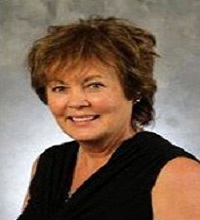
Ethics Education Project
Academic Year 2017-2018
Developing a new 2000 level economics course this summer (it does not yet have a number or title) and teaching it in Spring 2018. It will be open to all students at UCCS as a social science elective. The course will differ from traditional principles of economics, which is based on the neoclassical separation of economic analysis and ethical concerns. The course will start with the fundamental economic problem of how people provide for themselves. It will then raise issues of how ethical concerns interact with changing technological possibilities and resource realities as people make choices. Students will grapple with different ethical perspectives and what these mean for economic decisions in the workplace, the consumer marketplace, the financial system, and the public sector. This will help them become familiar with all the learning objectives of the DFEI. They will also be actively encouraged to participate in campus wide activities related to the initiative.
Focus Areas
Impact
To be provided
Resources
Ethics Roundtables
February 2018 Ethics Roundtable:
From Adam Smith to Sustainable Development: Return of Economic Analysis (PPT)
Articles and News
Greenwood to Present at Local Church
Greenwood to Present on Sustainability
Greenwood to Speak at Women's Group
Greenwood Book to be Published
Contact: dgreenwo@uccs.edu
Spencer Harris, Ph.D.
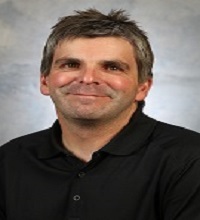
Ethics Education Project
Academic Year 2017-2018
Integrating the DFEI ethical principles into the SPTM 4200 Critical Issues in Sport Management class to ensure that the students in the class understand the principles, are able to apply the principles to a broad range of ethical dilemmas within the world of sport governance (e.g. the contradictions of fair play and Olympism, doping in sport, corruption in ISFs, technological inequalities in performance sport, gender inequalities in governance structures, major challenges in youth sport development, sex testing in elite sport, violence in sport, child protection and safeguarding, etc.), and can model the principles to discuss possible strategies to minimize the incidence of such wicked problems in an international sport governance context (Rittel & Webber, 1973). Students will have the opportunity to engage with key business leaders in sport governance through guest lectures and a panel discussion of major ethical dilemmas in sport to include gender inequality, doping, and child protection and safeguarding in sport. Further details will be developed over the summer, 2017. Integrate an assessment into the 4200 class whereby students are required to design, develop and evaluate a training module focused on sportsmanship and fair play. The intention is to ultimately deliver a workshop, using various tools and resources to support delivery (e.g. True Sport, Positive Coaching Alliance, etc.), to elementary or middle aged school children that reinforces the importance of fair play and sportsmanship, and clearly demonstrates the positive outcomes of such an approach for athletes, coaches, and parents.
Focus Areas
Impact
- 897 Students
- 47 Educators
Resources
Articles and News
Eight Picked as Ethics Fellows
Educational Materials
Contact: sharris2@uccs.edu
Scott Kupferman Ph.D.

Ethics Education Project
Academic Year 2017-2018
Ethical use of technology should begin in K-12 classrooms. For example, before students are given access to iPads or laptops, they need to understand (a) proper "netiquette", (b) student safety and privacy, (c) unauthorized access at school, and (d) objectionable materials showing up at school. Ensuring student understanding of this content is the ultimate responsibility of classroom teachers.
Within my faculty role in the College of Education, I teach future classroom teachers. Specifically, all general and special education teachers are required to complete my CURR 4170/5170 - Introduction to Technology in Education course. As a DFEI fellow, I will incorporate DFEI ethics principles throughout this course. Approximately 30 undergraduate and graduate students enroll each semester. Thus, a total of 60 students will be reached via my DFEI fellowship efforts during the Fall 2017 and Spring 2018 semesters.
Focus Areas
Impact
46 Students
22 Educators
Resources
Ethics Roundtable
March 2018 Ethics Roundtable
Tips and Tools for Teaching Cyber Ethics
Articles
UCCS Hosts Japanese Delegation for Disability Access and Inclusion Visit
Eight Picked as Ethics Fellows
Kupferman Presents in Korea on Disabilities
Contact: skupferm@uccs.edu
Edin Mujkic, Ph.D.
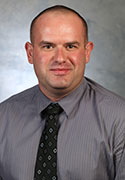
Ethics Education Project
Academic Year 2017-2018
I am proposing a revision of an existing curriculum that would help the development of ethics awareness in the fields of Public Administration and Homeland Security/Emergency Management. As a faculty member in the College of Public Service students, under my guidance, will develop policy reviews based on case studies. Policy reviews will be based on Bill Daniels' ideal that ethics instruction be tied to principles rather than focus only on legal aspects of leadership. The framework will be developed based on policy reviews stemming from cases studied in a mandatory book review for a midterm exam. In all classes I am assigning mandatory book reviews for the midterm exams. The following books will be assigned, providing unique case studies that pertain to the class:
In class PAD 5001 Introduction to Public Administration, which is offered during the spring semester, the mandatory reading would be the book Bad Blood written by James H. Jones. Jones offers insights into the Tuskegee Experiment. I have been assigning this book in this class for the last two years, and it has had a big impact on the students' understanding on the role of ethics and moral in public administration. The horrible effects that the Tuskegee Experiment left on the people of Macon County, AL and long term consequences, such as distrust in the government (the Tuskegee Experiment, are responsible for theories that AIDS was "planted" by government agencies to hurt the African-American population).
In class PAD 5960 Introduction to Homeland Security and Emergency Management, which is offered during the fall semester, the mandatory reading is the book Great Deluge written by Douglas Brinkley. This book discusses failures of government and general bureaucracy during Hurricane Katrina. This book is assigned to offer students a different view on the failures during hurricane Katrina. Usually, in classes like this one, structural and technical aspects of failures are discussed. However, my intention is to offer a different view, where actions or inactions of public administrators have life and death consequences.
Focus Areas
Impact
- 79 Students
- 19 Educators
Resources
Ethics Roundtable
April 2018 Ethics Roundtable:
Teaching Ethics in Public Administration (PPT)
Applying Ethical Principles in Public Administration Classes (video)
Articles and News
Ethics Training for U.S. Military Leaders: Challenging the Conventional Approach
Hugo Asencio, Theodore Byrne & Edin Mujkic (2017) Ethics Training for U.S. Military Leaders: Challenging the Conventional Approach, Public Integrity, 19:5, 415-428, DOI: 10.1080/10999922.2016.1272153
Abstract:
The U.S. military plays a fundamental role in protecting the United States and its national security interests. Given the nature of the combat and noncombat duties military personnel perform and the ethical dilemmas they face in doing so, it is fundamental that they be men and women of strong ethical competence. Providing effective ethics training to those serving in the U.S. military is crucial; particularly to senior leaders, as they create the environment in which subordinates perform their duties. Current ethics training for senior leaders in the U.S. military focuses on developing individual moral competence. This article argues for the need to complement such training with an approach focusing on developing individuals' capacity to create and sustain organizational environments in which ethical reflection and action are possible.
Keywords: ethics training, individual capacity building, senior military leaders, U.S. military
Mujkic Co-Authors Article on Military Ethics
Eight Picked as Ethics Fellows
Yanyan Zhuang, Ph.D.

Ethics Education Project
Academic Year 2017-2018
My goal is to address the topic of "Ethics and Technology". My objectives are to (1) advance student learning, and (2) outreach to other institutions of higher education and community constituents. To achieve these goals, I will design a course at the Department of Computer Science addressing one of the most important ethics issues in the discipline, Internet privacy and censorship. I will also organize a workshop with an international conference to promote my research project that aims to protect the privacy of ordinary people who use mobile devices.
Focus Areas
Impact
- 19 Educators
Resources
Ethics Roundtables
April 2018 Ethics Roundtable
Creepy and Invisible: Learning Privacy and Censorship in Classrooms- Addressing one of the most important ethics issues in the computer science discipline, Internet privacy and censorship.
Articles and News
Contact: yzhuang@uccs.edu
http://www.cs.uccs.edu/~yzhuang/index.html
Associate Professor of Management, College of Business [2016-2017]
Ethics Education Project
Academic Year 2016-2017:
Applied the Daniels Fund Ethics Principles within the context of workplace diversity training and organizational diversity management. Mini-cases were incorporated in MGMT 3300 course sections, an experiential activity was incorporated in HRMG 4380 course sections.
Focus Areas
Impact
- 164 Students (MGMT 3300 and MGMT 4380)
- 19 Educators
Resources
November 2016 DFEI Ethics Roundtable Presentation:
Ethics - Diversity and Inclusion: Beyond Compliance
Articles and News
Andrea Hutchins, Ph.D. RD
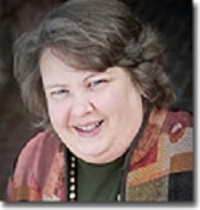
Ethics Education Project
Academic Year 2016-2017
Develop and implement in HSCI 2080 Profession of Dietetics course three case studies that will encourage the students to examine ethic principles and their own ethical beliefs, integrate the Code of Ethics for the Profession of Dietetics into their personal and professional code of conduct, and apply it to real-life situations that have ethical components and implications.
Focus Areas
Impact
- 47 Students
- 14 Educators
Resources
Articles and News
Seven faculty tapped as ethics fellows
Contact: ahutchin@uccs.edu
Jugal Kalita, Ph.D.
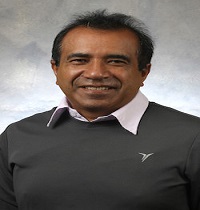
Ethics Education Project
Academic Year 2016-2017
Ethics components will be incorporated in classes related to Artificial Intelligence and Machine Learning. An ethics component will also be incorporated in the training students receive while performing undergraduate and graduate research in these areas. There will be two perspectives of ethics that will be considered. i) As the scientific and engineering communities build artificial intelligence that can think and act like humans, what is the role of ethics in research and practice? Ii) As huge amounts of data are being collected, primarily from the Internet and mobile technology related activities, what role ethics should play as information is being mined about individuals and then used for various purposes by corporations and governmental entities.
CS 3050-Social and Ethical Impacts of Computing; CS 4820/5820-Artificial Intelligence; CS 5710-Evolutionary Algorithms, 5860-Machine Learning, 5870-Artificial Neural Networks, CS 5880-Information Retrieval: CS 5890---Computational Linguistics; REU Summer Training: The fellowship applicant, Kalita, runs a summer camp for 10 undergraduates who come from around to country to engage in machine learning research.
Focus Areas
Impact
- 155 Students
- 21 Educators
Resources
Ethics Roundtables
March 2017 Ethics Roundtable
Ethics in Artificial Intelligence
Articles and News
Seven faculty tapped as ethics fellows
Regents Approve 22 for Sabbatical
Contact: jkalita@uccs.edu
Carla Myers, MLIS

Ethics Education Project
Academic Year 2016-2017
The responsible, ethical, and legal use of information is a topic of critical importance in both academia and the business world. Students will learn how to apply ethical and legal principles to the selection, use, and communication of information by participating in the following activities: Online Learning - Students will be able to access information on the ethical use of information through the Kraemer Family Library's Copyright Education Initiative website. Topics covered will include determining the quality of information, properly citing sources in order to avoid plagiarism, and reusing the copyrighted works of others in a manner that is compliant with U.S. Copyright Law. Blackboard Integrated Instruction - Information on the legal and ethical use of information will be made available through a Blackboard module. Quizzes will be integrated into the module to help assess students understanding and retention of information in the module. UCCS instructors will be able to assign this module to students for supplementary learning or as a graded assignment. Course Integrated Instruction - Instructors will be able to request course integrated instruction on : Using Library resources to find scholarly resources; Evaluating the quality of information found on the World Wide Web; Properly citing sources so as to avoid plagiarizing the works of others; Reusing works in research and course assignments in a manner that is compliant with U.S. Copyright Law. The materials being developed aligns with numerous Daniels Fund Ethics Initiative Principles: Integrity: Communicating information to stakeholders, including instructors and fellow students, in an honest and ethical manner. Trust: Utilizing reputable sources of information to build trust with others. Transparency: Using verified data and information to develop and maintain open lines of communication with others. Respect: Understanding and utilizing information in a way that demonstrates respect for the intellectual property of others. Rule of Law: Complying with the rights and responsibilities afforded to users under U.S. Copyright Law.
Focus Areas
Impact
An amazing resource for the entire UCCS campus and community.
Resources
Cut and Paste? The Ethical Reuse of Copyrighted Content (PPT)
Ethics & Information - Identifying Quality Sources (Video)
Plagiarism and Copyright - Ethical and Legal Considerations (Video)
Kimbra Smith, Ph.D.

Ethics Education Project
Academic Year 2016-2017
Design a senior seminar course on the ethics of public anthropology in Fall 2016 and will teach the course in Spring 2017. After a few weeks of introduction to questions of ethics in public anthropology, students will analyze several existing public outreach projects produced or otherwise informed by anthropologists. Collectively, we will develop a template for assessing such projects in terms of how well they comply with ethical principles.
Focus Areas
Impact
- 33 Students
- 9 Educators
Resources
Articles and News
Going Public: Teaching Students Ethical Design in Public Anthropology
Contact: ksmith5@uccs.edu
Regina Winters, MPA

Ethics Education Project
Academic Year 2016-2017
Students enrolled in the nonprofit management certificate area will work with me in a service learning experience that will contribute the development of nonprofit ethics awareness in the state of Colorado and beyond. Under my guidance, as a practitioner and faculty member, students will develop a decision-making framework for nonprofit boards of directors of various sizes that helps board members incorporate and deal with the challenges of social return on investment based data. Students will then facilitate their ethics training based upon this framework for local nonprofit boards of directors.
The development and resulting decision-making framework aligns with Bill Daniels' ideal that ethics instruction be tied to principles rather than focus only on legal aspects of leadership. At the end of the experience, training materials will be made available to interested nonprofit community members as well as through distribution channels offered through the Daniels Fund. In addition, I will write a pedagogical case study to help other University communities replicate our service learning experience.
Focus Areas
Impact
- 13 Students
- 9 Educators
Resources
Ethics Roundtables
November 2016 Ethics Roundtable Presentation
Ethics - Evaluation Ethics for Nonprofit Boards
Articles and News
Seven faculty tapped as ethics fellows
Contact: rwinters@uccs.edu
Patty Witkowsky, Ph.D.
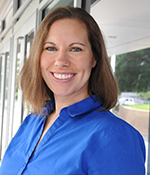
Ethics Education Project
Academic Year 2016-2017
Promote ethics education within the SAHE program to prepare students to be ethical leaders in higher education, as well as with student affairs professionals state-wide. This project will include use of my role as the Faculty Representative with the College Personnel Association of Colorado (CPAC), a state division of the American College Personnel Association (ACPA), one of the two leading professional associations for the student affairs profession.
Focus Areas
Impact
Ethics in Student Affairs Presentations were attended in 2016 (UCCS) and 2017 (CSU-Pueblo) that reached 110 student affairs professionals from across the state from the following institutions: UCCS, CSU-Pueblo, Adams State University, Colorado College, Pueblo Community College, Pikes Peak Community College, CU-Boulder, Colorado Technical University, University of Colorado-Denver, Metropolitan State University-Denver, Johnson & Wales University, the Community College of Denver, and Colorado State University.
Resources
Articles and News
Dr. Patricia Witkowsky was awarded the Quality Matters certification (as of fall 2016 only 16 courses have received this certification in the CU system) for her online course LEAD 5260 College Student Development Theories.
Dr. Patricia Witkowsky will receive a Global Intercultural Research Center Seed Grant for her project entitled "Experiences of U.S.-Trained Student Affairs Professionals Working in Higher Education Institutions Abroad". Dr. Witkowsky will use the findings from her study to inform student affairs graduate preparation programs in the U.S. and to apply for additional funding related to global intercultural education.
Contact: pwitkows@uccs.edu
Senior Instructor of Mechanical and Aerospace Engineering, College of Engineering
Ethics Education Project
Academic Year 2015-2016:
Incorporated ethical decision making material into four different engineering classes with a focus on the ability to identify ethical issues in engineering practice, to apply ethical principles to reach decisions in these cases, and to represent ethical principles in the profession of engineering.
Focus Areas
Impact
- 222 Students (MAE 1502, 3040, 4000)
- 20 Educators
Resources
March 2016 DFEI Ethics Roundtable Presentation:
Integrating Ethics throughout a Mechanical Engineering Curriculum - Focusing on student learning through the development of academic ethics content at all four levels of the undergraduate mechanical engineering curriculum
Articles and News
Senior Instructor of Philosophy, College of Letters, Arts, and Sciences [2015-2016]
Ethics Education Project
Academic Year 2015-2016:
Created a pedagogical tool used as an interactive excursion into the multifaceted discipline of Ethics. This tool is in the form of a game entitled: A Passport to Ethical Thinking. Additionally, a series of role-based case studies were developed that are founded on real world issues; signaling to our students a departure from a potentially dry discipline to an adventure into responsible and principled decision making. These role-based case studies were focused on the incredibly pivotal Daniels Objectives.
Focus Areas
Impact
- 281 Students (PHIL 1020 and 1120)
- 25 Educators
Resources
March 2016 DFEI Ethics Roundtable Presentation:
The Dynamics of Moral Instruction. A Journey Towards: "Integrity, Trust, Fairness and Respect." - A series of role-based case studies founded on real world issues resulting in an adventure into responsible and principled decision making
Articles and News
Adjunct Instructor, Electrical and Computer Engineering, College of Engineering [2011-2012], [2012-2013], [2013-2014]
Ethics Education Project
Academic Year 2015-2016:
Developed coursework for the QUAN 2020 class that includes ethical discussion and decision making as it relates to business analysis. Through this ethical element, students realize that there are ethical issues that need to be considered in making business decisions - that decisions can not only be based on the revenue, schedule, or the bottom line. Students then complete a case study from Ethics-LX that requires them to combine tools they have learned in QUAN 2010, Business Statistics, and tools they have learned in QUAN 2020 to make an ethical decision in a business scenario.
Focus Areas
Impact
- 1,370 Students (QUAN 2020)
- 27 Educators
Resources
April 2014 DFEI Ethics Roundtable Presentation:
Figures don't lie, but liars sure figure! - How figures can be misinterpreted to make a case
March 2013 DFEI Ethics Roundtable Presentation:
Do you really know your Ethics? - Reviewing your own ethics
Articles and News
Thomas Martin Key, Ph.D.
Ethics Education Project
Academic Year 2015-2016
Thomas “Martin” Key is Associate Professor of Digital Strategy & Marketing at the University of Colorado Colorado Springs. Dr. Key was originally trained as a cultural anthropologist before launching his own business in 2003. After nearly a decade, he went back to university and earned a PhD in Business Administration with emphases in marketing and strategy. His research primarily deals with digital and strategic marketing issues at the executive level and the study of marketing’s role in the firm. He has published in business and marketing journals including the Journal of the Academy of Marketing Science, the European Journal of Marketing, Journal of Business and Industrial Marketing, the Journal of Marketing Channels, Business Horizons, and the Journal of Consumer Behaviour. He is a Daniels Ethics Initiative Fellow and Cybersecurity Fellow and frequently works with new startups as well as established firms to help them create plans to grow and create value for their customers.
Components of Martin's project includes:
- Student learning - By critically examining ethical issues in the area of social media, students will develop a deeper understanding of their impact in the context of Digital Marketing Strategy.
- Involvement of the business community - Students work with local business community to include ethics in their Digital Marketing Strategy plan
- Outreach to non-business disciplines on campus - Social media ethical issues apply in many non-business related areas
Focus Areas
Impact
- 111 Students
- 25 Educators
Resources
Ethics Roundtables
February 2015 DFEI Ethics Roundtable Workshop:
Ethical Issues in Social Media - Critical examination of ethical issues in the area of social media, his work with students to develop a deeper understanding of their impact in the context of Digital Marketing Strategy, and how social media ethical issues can apply in many non- business related areas
Outreach
"Teaching Ethics Across the Curriculum" - Based on his ethics social media subject matter expertise, Dr. Key presented to the faculty of Colorado Mountain College, Breckenridge Campus
Articles and News
Faculty tapped for ethics fellowships
Case Study: "Cultural Residue"
Contact: tmkey@uccs.edu
Scott Van Ness, ABD

Ethics Education Project
Academic Year 2015-2016
Development of an Ethics Lab, this lab is similar to leadership labs seen in corporate world where young leaders are given leadership challenges in a lab setting. Ethical challenges are given to students and they are given the chance to work through them while being evaluated by an instructor and other students. Situations will be taken from real-world examples and will attempt to represent what a new leader in a work environment will face.
Focus Areas
Impact
- 212 Students
- 14 Educators
Resources
Ethics Roundtables
April 2016 DFEI Ethics Roundtable Presentation:
Ethics Lab and Minor in Business Ethics for Non-Business Majors - Best practices and past experiences with ethics lab classroom implementation and plans for business ethics minor
Articles and News
Faculty tapped for ethics fellowships
Contact: svanness@uccs.edu
James Van Scotter II, Ph.D.
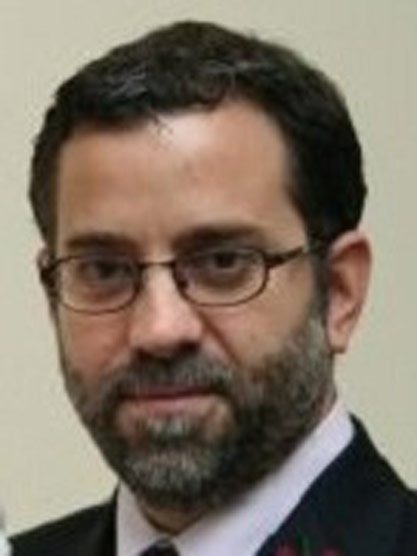
Ethics Education Project
Academic Year 2015-2016
Developed a class activity that features teams consisting of 2-3 students engaging in a real-world project by choosing an organization (for profit or non-profit) in the local community, identifying ethical issues and principles relevant to the organizational environment, and crafting ethical guidelines and codes of conduct.
Focus Areas
Impact
- 43 Students
- 14 Educators
Resources
Ethics Roundtables
April 2016 DFEI Ethics Roundtable Presentation:
Giving Voice to the Value Chain - using Porter's Value Chain as an organizing framework for ethical audits
Articles and News
Faculty tapped for ethics fellowships
CEO Bright and Dark Personality: Effects on Ethical Misconduct
Contact: jvanscot@uccs.edu
Joseph D. Wehrman, Ph.D.

Ethics Education Project
Academic Year 2015-2016
The United States Air Force Academy (USAFA), under the Military's Agenda for Change recommendations, resurrected a program at UCCS, which combined DCHS counseling courses with Leadership courses recommended by USAFA. The intent of both DCHS and USAFA is to provide new commanders the skills, knowledge, abilities, and experiences necessary to address the many academic, ethical, psychological, and developmental issues cadets will experience. The principles taught in this program are applicable to all levels of command and will prepare commanders for the most challenging aspect of leadership at USAFA and in the operational Air Force. As part of this program, students take a course in professional ethics across a spectrum of skills ranging from teaching, leadership, counseling and coaching.
In the course Issues, Ethics and Trends in Professional Counseling (COUN5330), students participated in ethics round tables and processed ethical case scenarios within the mental health and coaching field. We used the eight core Daniels Fund Principles and then applied them to an ethical decision making model. The primary points of feedback were positive related to taking real world examples of ethical situations found in the human service and mental health fields and then processing these issues and taking personal stances. Many of the groups requested more opportunities to participate in these types of projects as it took them one or two experiences to feel comfortable taking personal stances with complex issues. As a combined project, graduate students from COUN5330 and undergraduate students from Issues, Values and Case Management (COUN3400) participated.
Focus Areas
Impact
- 61 Students
- 23 Educators
Resources
Ethics Roundtables
February 2015 DFEI Ethics Roundtable Presentation:
Integrating Values and Ethics in Training for USAFA Cadre and Human Services Students
Articles and News
Education to Merge Departments
Contact: jwehrman@uccs.edu
Assistant Professor of Management, College of Business [2013-2014]
Ethics Education Project
Academic Year 2013-2014:
Development of course materials specifically in-class activity centered on Giving Voice to Values with the action elements that created a self-assessment, developed a series of mini-cases and a role-play about unethical conduct of peers or co-workers. Facilitated student developed debate issues that revolve around ethics and the principles set forth by the Daniels Fund Ethics Initiative.
Focus Areas
Impact
- 110 Students
- 21 Educators
Resources
February 2014 DFEI Ethics Roundtable Presentation:
Bringing Ethics to Life in the Classroom
Outreach
November 2013 Community Outreach Presentation:
Based on this ethics subject matter expertise, Dr. Bluhm presented to the Young Professional and Rising Professional Organization.
Assistant Professor, Department of Communications, Media Ethics Course/Service Learning, College of Letters Arts Sciences [2014-2015]
Ethics Education Project
Academic Year 2014-2015:
Developed a Media Management (COMM4500) course taught in the fall 2014 semester at UCCS. The course was offered to both undergraduate and graduate students in a hybrid format. As a new course, eight students enrolled in the course, however larger class sizes in future are anticipated. The reach of the course expanded beyond the classroom, as the students worked with outside organizations to address an ethical media management dilemma (eight organizations). The class hosted three guest speakers who are leaders in local media. The class affected approximately 20 people.
After participating in the Daniels Fund Consortium Ethics Summit on social media, Dr. Brengarth organized a Media Management Ethics Summit student workshop at UCCS held in November 2014.
Focus Areas
Impact
- 79 Students
- 46 Educators
Resources
November 2014 DFEI Ethics Roundtable Presentation:
Media Management Ethics Summit - Panel experts from academia, print, digital content, public relations and broadcast responded to ethical issues in their industry
January 2013 DFEI Faculty Roundtable Presentation:
Social Media Ethics - A course to address today's evolving ethical dilemmas
Articles and News
Instructor, Criminal Justice, College of Public Service [2013-2014], [2014-2015]
Ethics Education Project
Academic Year 2013-2015:
Developed and delivered two workshops on the topic of ethical dilemmas faced by law enforcement personnel and the strategies for resolution. Curriculum materials included handouts, video scenario presentation, role-playing exercise, and presentation by police and corrections personnel. The curriculum emphasized students' awareness and professional readiness to prepare for success in the efficient management and resolution of ethical issues that may occur in their careers. Developed the Policing and Corrections student workshops held on the UCCS campus.
Focus Areas
Impact
- 83 Students
- 41 Educators
Resources
October 2014 DFEI Ethics Roundtable Presentation:
Ethical Challenges in Criminal Justice at the Supermax prison - Professional ethical issues with guest presenter Gene Atherton, former Director of Prisons for the Western Region in Colorado
December 2013 DFEI Ethics Roundtable Presentation:
Boundaries Violations Research - Ethical issues with guest speaker Susan Jones, Ph.D., former Warden of Colorado State Penitentiary
Behavior Choices Among 326 Staff at Colorado State Penitentiary (PPT)
Articles and News
Senior Instructor of Accounting, College of Business [2013-2014]
Ethics Education Project
Academic Year 2013-2014:
Developed short answer and multiple choice questions for ACCT2010 and ACCT2020 that focus on the three pillars of fraud (opportunity, motivation, and rationalization). These materials are based on the text book discussion but will go farther than the authors and are available for use by all ACCT2010/2020 instructors and for inclusion in semester-end assessment tools in those courses.
Focus Areas
Impact
- 300 Students
- 24 Educators
Resources
October 2013 DFEI Ethics Roundtable Presentation:
Best practices regarding course content, ethics in the classroom, and handling ethical conduct in the classroom
Mary Ann Cutter, Ph.D.
Ethics Education Project
Academic Year 2013-2014:
Dr. Cutter developed a wide variety of educational materials that included a syllabus for a new Ethics of Life and Health (PHIL3130) course taught online for the first time at UCCS in fall 2014. Materials include a series of 15 reflections exercises and a short case study to use in the course. Because of discussions with the Department of Chemistry and Biochemistry, Pre-Med students must complete PHIL3130, increasing the number of students at UCCS that will be exposed to ethics education based on principles. With this new course and continued teaching of Practical Ethics (PHIL3180), students are learning principle-based ethics from three members of the faculty. Dr. Cutter presents an ethics case study to students at the Gateway Program Seminar session ("Unreality").
Focus Areas
Impact
- 95 Students
- 23 Educators
Faculty Roundtables
September 2014 DFEI Ethics Roundtable Presentation:
Teaching Ethics Case Study Online
Teaching Case Study Ethical Analysis Online
August 2013 DFEI Ethics Roundtable Presentation:
Case Study Approach in Ethics Education: A Suggestion Integrating Theory and Practice
Articles and News
Cutter Named CU President's Teaching Scholar
Three Faculty Earn Quality Matters Certification
Resources
Contact: mcutter@uccs.edu
Andrew Czaplewski, Ph.D.

Ethics Education Projects
Academic Year 2013-2015
Dr. Czaplewski has developed original Integrated Marketing Communication (IMC) cases for use in Promotion Management and Strategy (MKTG4650). Each case requires students to explore significant ethical issues related to marketing, advertising and IMC overall and lecture materials associated with cases.
- Case #1 (Fall 2013) - Chipotle Green Marketing & Corporate Social Responsibility and Case #2 (Spring 2014) - Partnership for a Healthier American & Campaign fo End Obesity: Obesity Countermarketing Campaign.
- Case #1 (Fall 2014) Patagonia Green Marketing and Case #2 (Spring 2015) TOMS and the Buy One Give One Business Model.
Focus Areas
Impact
- 153 Students
- 37 Educators
Resources
Ethics Roundtables
April 2015 DFEI Ethics Roundtable Presentation:
Ethical Issues in Advertising and Promotions
March 2014 DFEI Ethics Roundtable Presentation:
Exploring Ethical Issues in Advertising & Promotions
Articles and News
Faculty Panel to Discuss Freedom of Speech Inquiry
Business Faculty Earn Research Paper Award
Contact: aczaplew@uccs.edu
Jeffrey Ferguson, Ph.D.
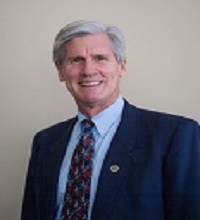
Ethics Education Project
Academic Year 2013-2014
Dr. Ferguson created a student discussion guide for an original direct-consumer case used in the graduate Marketing Strategy (MKTG6000) course. The discussion guide facilitated student thinking and engagement with the case. The overall assessment of the case was positive and students found the ethical decision making framework to be valuable. MBA students received this ethics education.
Services Management and Marketing (MKTG4400) course includes several ethics modules. 1) a presentation on ethical issues in marketing and ethical decision-making, 2) three Ethics Unwrapped videos with discussion questions, 3) a GVV reading and exercise -- Enablers for Voicing Values, and 4) integration of ethical decision making into the final term project.
Focus Areas
Impact
- 44 Students (MKTG6000)
- 24 Educators
Resources
Ethics Roundtables
April 2015 DFEI Ethics Roundtable Presentation:
Integrating Ethics into the Service Marketing Course
March 2014 DFEI Ethics Roundtable Presentation:
Direct-to-Consumer Advertising of Pharmaceuticals: The Case of Low T
Articles and News
Weiss, Ferguson to Chair General Education Implementation
Contact: jferguso@uccs.edu
Barbara Joyce, Ph.D.
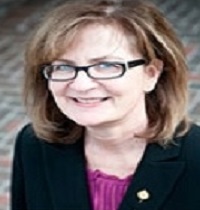
Ethics Education Projects
Academic Year 2013-2014
Dr. Joyce focused on the ethics of community health programs through engaging community and business partnerships for student learning. A Colorado Community Center Collaborative (CCCC) was formed with the vision to promote health equity by supporting positive youth development in community centers. At a presentation in a UCCS Faculty Ethics Roundtable, the Colorado Springs Park and Recreation Department presented how they incorporated the Daniels Fund Ethics Initiative Principles in working with other organizations in the collaborative.
Academic Year 2014-2015
Nursing students in Community Health Nursing (N4400) participated with the CCCC partners to initiate a healthy community program/service-learning project to further community work for healthy community programming. In the 2014-2015 academic year, 104 UCCS students and 12 community high school students participated in learning experiences on personal accountability for healthy living.
Focus Areas
Impact
- 196 Students
- 41 Educators
Resources
Faculty Roundtables
February 2015 DFEI Ethics Roundtable Presentation:
Strengthening Community Through Partnerships
April 2014 DFEI Ethics Roundtable Presentation:
Practicing Social Justice in a Market Justice World
Articles and News
Diversity Excellence Grant Awarded
Andrew D. Ketsdever, Ph.D.
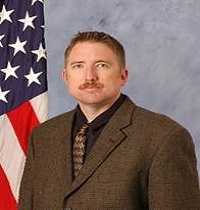
Ethics Education Projects
Academic Year 2013-2014
In 2013-2014 modules were designed based on appropriate case studies for a variety of courses throughout the Mechanical Aerospace Engineering (MAE) curriculum. MAE was used as a test case for this curriculum development before attempting to create a College-wide program. Case studies will be developed for the courses in Materials, Thermodynamics 1, Fluid Dynamics, Strength of Materials, Machine Design 1, Propulsion and Engineering Design. Dr. Ketsdever organized a project focused on the ethical dilemma facing many scientists and engineers that are involved in the defense industry. Technology has been a part of wartime activities since the dawn of civilization. Whether it is more "efficient" spear tips in the form of forged metals, gunpowder, or rocketry, advances in technology lead to "advances" in weaponry on the war field. Many engineering students struggle with the ethics of working in industry on defense projects. Often this stems from a feeling of ultimate responsibility for how a particular technology is deployed. This is a very pertinent topic for engineering students particularly in the Colorado Springs community based on the number of defense industry jobs in the local economy. Several ethical questions examined included: Is there an expectation of responsibility for how technology is implemented? Is there a responsibility when developing technology to understand all potential applications of that technology? Do you have faith in the leadership with control of the technology? Is there a difference between defensive and offensive weapons? What is the role of deterrent technology in actually saving lives?
Academic Year 2014-2015
The modules that were created were presented to students in MAE 4000 (MAE Seminar) over the fall 2014 and spring 2015 semesters. The fall 2014 semester presentation focused on the Manhattan Project while the spring 2015 semester incorporated a personal ethical dilemma during Dr. Ketsdever's work with the Air Force Research Laboratory. The Daniels Fund Ethic Initiative Principles were the basis for student discussions
Focus Area
Impact
- 205 Students
- 36 Educators
- 2 Community Members
Resources
Faculty Roundtables
April 2015 DFEI Ethics Roundtable Presentation:
January 2014 DFEI Ethics Roundtable Presentation:
Engineering Ethics: The Space Shuttle Challenger - A Case Study in Engineering Ethics
Articles and News
Regents Approve Faculty Sabbaticals
Contact: aketsdev@uccs.edu
David Leupp, Ph.D.

Ethics Education Project
Academic Year 2013-2014
Incorporated a specific ethics project of identifying specific ethical issues within the business they were studying within OPTM 3000 (Fundamentals of Operations Management) classes. In Fall 2013, 19 issues were identified and in Spring 2014 an additional 22 were identified.
Worked with the College Task Force to develop the honor code/code of conduct that is in place now at UCCS.
Focus Areas
Impact
- 86 Students
- 21 Educators
Resources
Faculty Roundtable
February 2014 DFEI Ethics Roundtable Presentation:
Student Identified Ethical Issues in Business Organizations - Results from student ethical audits in organizations
Contact: dleupp@uccs.edu
Matt Metzger, Ph.D.

Ethics Education Projects
Academic Year 2013-2014
Dr. Metzger focused on developing and refining teaching materials for the UCCS Bachelor of Innovation's Teams Class. Over the course of two years, these materials reached business and non-business UCCS students in multiple sections of Innovation Team: Analyze and Report (INOV2010), Innovation Team: Research and Execute (INOV3010), and Innovation Team: Design and Lead (INOV4010). These materials included an online intervention designed to help students gain awareness of ethical issues at multiple levels (i.e., the individual, organization, and industry) that might be encountered in entrepreneurial settings.
Academic Year 2014-2015
An ethics questionnaire (IRB #14-063) provided quantitative data on the impact ethics education had on student learning, comparing students in the experimental group that received the ethics education material to those in the control group that were not exposed to the material. Qualitative data was also collected from the team's final reports to their clients (where they expand upon the ethical issues they uncovered at the individual, organizational, and industry levels) and from open-ended responses on the questionnaire. An analysis of these data suggest that these materials influenced students' abilities to identify actual, or potential, ethical issues related to their client businesses and their awareness of their own susceptibility to ethical lapses.
Focus Areas
Impact
- 105 Students
- 42 Educators
Resources
Ethics Roundtables
April 2015 DFEI Ethics Roundtable Presentation:
Ethics in Interdisciplinary Student Teams - Classroom outcomes and experiences
May 2014 DFEI Ethics Roundtable Presentation:
Ethics at the Interface: Bridging students' classroom experiences with real-world phenomena
Contact: mmetzger@uccs.edu
Associate Professor of Information Systems, College of Business [2011-2012], [2012-2013]
Ethics Education Project
Academic Year 2011-2012:
Integrated an IS/IT ethics understanding and awareness in the INFS 3000 course starting in Fall 2011. Designed the Ethical Efficacy Survey that included a pre- and post-ethics awareness survey that was implemented at the beginning of the semester and at the end of the semester to measure changes in attitudes and understanding of ethics issues in information systems and information technologies.
Academic Year 2012-2013:
Developed a case on ethics and web security. This case can be used for ethics and privacy discussion and web security discussions. Specific ethics cases developed by Dr. Beranek include: family websites, prescription drug industry, hacker groups, and Amazon marketing research programs. This work provides IT and privacy ethics resources for classrooms at community colleges and UCCS audiences.
Focus Areas
Impact
- 111 Students
- 16 Educators
Resources
November 2012 DFEI Ethics Roundtable Presentation:
Roundtable ethics discussion on:
- Who has your data?
- Who knows where you are?
- Who knows more about you than you do?
August 2012 Faculty Development Workshop:
"Teaching Ethics Across the Curriculum" - Based on her ethics subject matter expertise, Dr. Beranek presented to the faculty of Pikes Peak Community College, Centennial Campus
Education Materials
Family Website: Warm and Fuzzy or Downright Scary
Articles and News
Associate Dean/Associate Professor of Accounting, College of Business [2011-2012], [2012-2013]
Ethics Education Project
Academic Year 2011-2012:
Developed an Accounting Ethics course taught in the College of Business accounting program. The course incorporated Giving Voice to Values in an accounting context. This course is an requirement in the MSA accounting curriculum and is an elective in the MBA program. Any student wishing to pursue a career as a CPA will need this course in order to meet the State of Colorado requirements for licensure.
Academic Year 2012-2013:
Worked with the NASBA (National Association of State Boards of Accountancy) Center for Public Trust to get our accounting students connected with other students from around the country committed to holding the accounting profession to the highest of ethical standards. Served as the first faculty advisor for the Student Center for Public Trust (SCPT) in the UCCS College of Business.
Focus Areas
Impact
- 148 Students
- 18 Educators
Resources
April 2013 DFEI Ethics Roundtable Presentation:
Accounting and Ethics
Articles and News
Robert Hirschfeld, Ph.D.

Ethics Education Projects
Academic Year 2011-2012
Incorporated material from Giving Voice to Values (GVV) throughout Fall Semester 2011 in BUAD3000. The GVV approach was used as a means of developing important personal and interpersonal skills for management. This approach was adopted by all instructors of this required course in 2012.
Academic Year 2012-2013
The 2012-13 endeavors continued to incorporate material from Giving Voice to Values (GVV) in BUAD3000 throughout Summer 2012, Fall 2012, and Spring 2013. The GVV approach continued to be used as a means of developing important personal and interpersonal skills for management. The course addresses 4 of the student learning goals for the UCCS College of Business (CoB). It is a primary course for developing (a) effective teamwork skills and (b) communication competencies; it is a secondary course for understanding (c) key issues of operating in diverse organizations and (d) how to integrate core business concepts across disciplines.
Focus Areas
Impact
- 352 Students
- 14 Educators
Resources
Ethics Roundtables
February 2013 DFEI Ethics Roundtable Presentation:
Cases as a means of understanding how to apply ethical concepts
Contact: rhirschf@uccs.edu
Colleen Stiles, Ph.D.

Ethics Education Projects
Academic Years 2012-2014
Dr. Stiles created a project that actively engaged students in building an ethical framework of philanthropic decision-making. Students completed a 6-month philanthropic team experience resulting in a working knowledge of the role ethics plays in the identification, analysis, and funding of a philanthropic initiative; a working knowledge of the philanthropic funding experience; and two mentoring relationships with successful philanthropists. Ethical projects/education reached 404 students taking Introduction to Entrepreneurship (ENTP100), Entrepreneurship and Strategy ENTP4500), Innovation Team: Analyze and Report (INOV2010), Innovation Team: Research and Execute (INOV3010), and Innovation Team: Design and Lead (INOV4010) in the 2014-2015 academic year.
Planned, developed, and implemented an ethics education integrated plan for the Bachelor of Innovation core curriculum. Year two is the testing of the plan, year three for implementation faculty wide within the BI.
Developed an Ethics in Entrepreneurship 100 speaker series - panels of business speakers on ethics.
Convened four student focus groups to discuss development of curriculum ethics core. Feedback resulted in the addition of online gaming into the content.
Focus Areas
Impact
- 734 Students
- 23 Educators
Resources
Ethics Roundtables
August 2014 DFEI Ethics Roundtable Presentation:
Venture Philanthropists in Education: Friend or Foe?
Contact: cstiles@uccs.edu
Gordon Stringer, MBA

Ethics Education Projects
Academic Year 2012-2013
Developed materials to introduce Giving Voice to Values approach within a financial framework and discipline to include:
- Financial ethics instruction.
- Developing classroom materials concerning ethics within the financial decision making framework.
- Created ethical classroom materials to address a practical and professional approach to ethics in finance for an Internet archive which included a finance course syllabus and an ethics in finance debate topics.
Academic Year 2013-2014
Developing materials to introduce Blind Spots approach within a financial framework.
- Developing Blind Spots classroom exercises.
- Developing Blind Spots with classroom debate within a case based structure
Focus Areas
Impact
- 484 Students
- 45 Educators
Resources
Ethics Roundtables and Workshops
September 2015 Faculty Development Workshop:
"Teaching Ethics Across the Curriculum" - Based on his ethics subject matter expertise, Mr. Stringer presented to the faculty of Colorado Mountain College, Breckenridge Campus
November 2013 DFEI Ethics Roundtable Presentation:
The Cornucopia of Codes of Ethics - is it part of your diet?
October 2012 DFEI Ethics Roundtable Presentation:
Roundtable ethics discussion on:
- Afraid of Teaching Ethics?
- Financial Statement Fraud: A Frightening Trend
- Ghoulish Governance
Ethics in Finance - Code of Ethics & Professional Conduct
Contact: gstringe@uccs.edu
